In this unique episode, Joe brings Tom Hatsis and Dr. Jerry Brown together for a psychedelic debate. They go back in forth in conversation on whether there was psychedelic use in medieval or ancient Christianity and if so, was there a secret tradition of including art of mushrooms or psychedelic substances in cathedrals and castles.
3 Key Points:
- Jerry Brown makes the claim that there is evidence of visionary plants in Christianity and the life of Jesus found in medieval art and biblical scripture.
- Tom Hatsis makes the claim that Christianity is not hiding a giant secret inside the biblical texts about the true hallucinogen at the root of the religion being an Amanita Muscaria.
- Jerry and Tom debate back and forth, pulling from art and textual evidence (and lack thereof) to support or deny the claim that Psychedelic Mushrooms are the root of Christian religion.
Support the show
- Patreon
- Leave us a review on iTunes
- Share us with your friends – favorite podcast, etc
- Join our Facebook group - Psychedelics Today group – Find the others and create community.
Navigating Psychedelics
Show Notes
Jerry B. Brown PhD.
Anthropologist, Author and Activist
Served as the Prof of Anthropology at FIU in Miami
He designed and taught a course on hallucinogens and culture
He is the Co-Author of Sacred Plants and the Gnostic Church: Speculations on Entheogen use in Early Christian Ritual
The Psychedelic Gospels: The Secret History of Hallucinogens in Christianity
Tom Hatsis
Author, Public Speaker, Roller Derby Player and Potion Maker
He is the Author of three books in Psychedelia;
The Witches Ointment: the Secret History of Psychedelic Magic
Psychedelic Mystery Traditions; Spirit Plants, Magical Practices and Psychedelic States Microdosing Magic: A Psychedelic Spellbook
Partnered with event organizer and short film maker, Eden Woodruff, who runs Psanctum Psychedelia in Portland in the process of winning the Guinness Book of World Record in Magic
Intro
- The debate is around the early Christian use of psychedelics and mushrooms in Christian art
- The conversation is on the validity on whether or not psychedelics were used in early Christianity
Dr. Jerry Brown on Psychedelics in Christianity
- The Miracle of Marsh Chapel - a double-blind experiment conducted by Walter Pahnky in 1962 where 20 students were divided into two groups, half received niacin and the other half received psilocybin
- 9 out of 10 who took psilocybin had a profound psychedelic experience
- Brown explains that this is an important part in the entire history of psychedelics
- After discovering the Amanita Muscaria mushroom (confirmed by Paul Stamets) in a 15th Century Church in Scotland, he realized that there were many entheogenic images in Christian art
- He says that most church historians do not have training in mycology to recognize entheogens and mushrooms
- He brings up an image of Adam and Eve standing next to a large Amanita Muscaria mushroom
- He went to a Parish Church and saw an image of Jesus entering Jerusalem on a Donkey, and one of the youths welcoming Jesus is holding a long mushroom cap
- He went to churches in England, Germany and France
- In the drawing of Genesis, he saw God creating plants (psilocybin mushrooms)
- "When you go back beyond the 3rd century, there are no visual images or Christian art due to poverty and persecution" - Jerry
- Jerry reads a passage,
“Jesus said to his disciples, “compare me to someone and tell me who I am like” Thomas said to him, “Master, my mouth is wholly incapable of saying whom you are like.” Jesus said “I am not your master, because you have drunk you have become intoxicated from the bubbling wellspring that I have personally measured out. He who will drink from my mouth will become like me, I shall become like he, and the things that are hidden, should be revealed to him.”- He interprets the passage as a reference to drinking a psychoactive mushroom substance
- Jerry goes on to explain that Jesus realized his feeling of eternal life through the use of psychoactive entheogens
- He says that this is not a means of dismissing Christianity, but instead to reintroduce Christianity with its original roots
Tom Hatsis on Psychedelics in Christianity
- Tom says that Jerry makes a lot of assertions, but does not present any evidence. He talks about art, but not anything in scripture
- Tom is curious why the only artwork that Jerry brings his assertions about mushrooms are from a time where we can’t ask them about it
- Tom brings up Julie and Jerry’s book and that the first chapter has nothing to do with Christian History at all
- Tom uses an example of stone mushrooms. Someone doing a cross cultural analysis, might agree that they are mushrooms based on the other findings of cannabis and opioids
- But, as a historian, Tom looks for evidence and in this case, there are eye witness accounts of its use
- He brings up the example, the infamous plaincourault fresco of Adam and Eve at the tree of good and evil with the forbidden fruit
- Using this one example, he wants to prove how critical historical methodology is used to prove unsubstantiated claims on Christian art as wrong
- Tom urges listeners to view the unaltered versions of the plaincourault fresco at Georgio Samorini’s Flikr page
- The paradise tree is a mix of the tree of knowledge of good and evil and a symbol of Christ's victory over Adam’s transgression. In the play, it was tradition to place small Eucharist wafers on the tree branches so that’s what the white dots are on the tree branches
- The tree's shape is not a mushroom cap, it is a parasol of victory
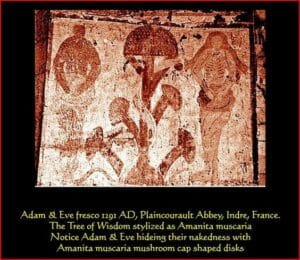
Jerry’s Rebuttle
- Jerry says that the absence of evidence, is not equal, or proof of evidence of absence (just because it’s not written in text, doesn't mean that its not there in the art)
- Jerry’s issue with the fresco is that “The Fall” is a New Testament creation, not all the way back in Genesis
- He says that on their website, they do not ‘alter’ the image, they ‘enhance’ it
- He says that Tom claims the fruit doesn't matter, but the fruit does matter (it could be a psychedelic mushroom)
- He touches on the skeletal appearance of Eve and the meaning of renewal of life
- Jerry thinks this image is the beginning of the religious experience and symbolism that the soul is immortal and will continue to exist after death
- He says the serpent is not a depiction of evil entering Eden, but instead a source of knowledge and a spiritual guide to the feminine to help bring man into higher awareness
Tom’s Rebuttle
- Tom says he didn't hear any evidence from Jerry, he heard arguments to authority
- He says that Jerry uses anthropology to uncover history, and opinions of art historians, but medieval historians agree that the mushroom is not present in Christian art
- He also says he did agree with Jerry about the mushroom in art, but that was last year and he has proven himself wrong and that the mushroom caps are parasols of victory
- Jerry says that Amanita Muscaria was in the Soma, but Tom says cannabis was, and mushrooms were not
Chris Bennett's book on Soma - There is zero evidence for mushroom art during medieval times
- In Jerry’s book, he writes about the Basilica di Aquilea, saying that they are Amanita Muscaria, but Tom says they are not that type of mushroom

- Tom also says that in the play depicted in the plaincourault, that the script literally says the wafers are hung on the tree, and that the little white dots are not the dots from an Amanita Muscaria
Jerry’s Closing Remarks
- He says that this isn't just cultural analysis, this is about fieldwork and looking at how native people view this artwork
- The problem he has with Tom and Church historians is that it is not taking evidence from Ethnobotanists
- Jerry says he believes that there is a long tradition of entheogenic mushrooms in Christian art and would like this debate to continue
Tom’s Closing Remarks
- Tom says he still isn't hearing evidence, he is only hearing assertions and argument to authority and eminent scholars
- Tom says that Genesis doesn't matter in the plaincourault, because we know that it's about the play
- He has multiple articles debunking these images on his website
- Carl Sagan’s Bologna Detection Kit - which shows how to spot fake conspiracies
- Tom says the holy mushroom hypothesis fails against all the claims Jerry has made
Links
Check out our online course, "Introduction to Psychedelics"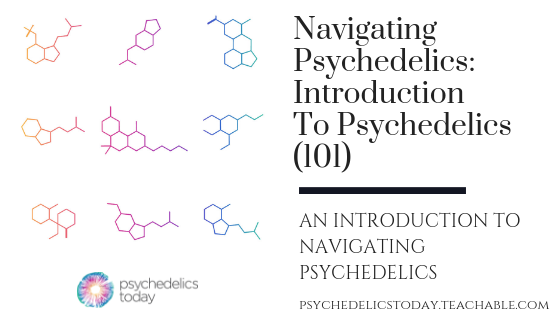
About Jerry
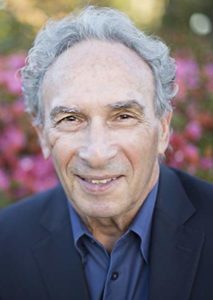
Jerry B. Brown, Ph.D., is an anthropologist, author and activist. From 1972-2014, he served as Founding Professor of Anthropology at Florida International University in Miami, where he designed and taught a course on “Hallucinogens and Culture.” The course examines the use of psychoactive plants by tribal and classical cultures, including Ancient India and Greece, and by and discusses the discoveries of the modern mind-explorers, the “psychonauts of the twentieth century.”
About Tom
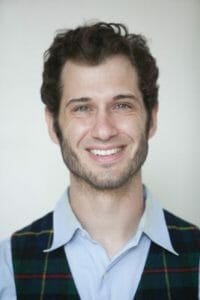
Thomas Hatsis is an author, lecturer, and historian of witchcraft, magic, Western religions, contemporary psychedelia, entheogens, and medieval pharmacopeia. In his spare time he visits rare archives, slings elixirs, and coaches roller derby.
In this episode, Joe interviews Duncan Autrey, a conflict transformation catalyst and educator. He runs a podcast, Fractal Friends, that covers topics of self-similarity across our diversity. During their conversation, Joe and Duncan discuss ways of resolving conflict in our relationships and society.
3 Key Points:
- Duncan Autrey is a conflict transformation educator, working for peace and cultural change.
- Conflict happens when one person wants to be heard so much that they stop listening to the other side. It is a product of living in a diverse world.
- We have more rights than we think we do when facing law enforcement.
Support the show
- Patreon
- Leave us a review on iTunes
- Share us with your friends – favorite podcast, etc
- Join our Facebook group - Psychedelics Today group – Find the others and create community.
Navigating Psychedelics
Show Notes
What is Conflict?
- Conflict is a product of living in a diverse world
- Conflict resolution is about how to get different perspectives working together
- Conflict happens when someone is really passionate about their side of the topic
- Conflict also happens when one person wants to be heard so much that they stop listening to the other side
- The ARC of conversation
- A stands for acknowledge
- R stands for reflect back
- C stands for be curious
Resolving Conflict
- Its okay to be certain about your own experiences, but someone might also be certain about their experiences and the key is to find a mutual ground
- "How do we understand ecological issues better and work with each other to find how to create better conversation around it?" - Joe
- In a conversation of conflict, the other side may be the antidote to your extreme
- Interdependent Polarity - each side has something positive and negative, and each side should acknowledge the negative but aim to pull out the positive of the other side
- Iceers
- “It's better to find a way to navigate the question, rather than to answer the question” - Duncan
- In a hierarchy of permanence, laws are really low. Laws come and go
- 3 ways we resolve conflict over time; power, violence and laws
- But the interest based model includes everyone and all sides and works through conflict to live in and share the same planet with each other
Impressive Resilience in Humans
- “Shifts happen”
- People that Duncan works with start thinking to themselves “I'm a good guy facing a bad guy” and the person on the other side of conflict also thinks “I'm a good guy facing a bad guy”
- Helping guide the people in conflict to just listen to the other person fully is what starts the shift
Law Enforcement and Conflict
- It's important to recognize the difference between the system and the individuals
- Our whole system of television, movies, everything is all feeding into this
- There are sociopaths in the world (5% of the population), and they are falling into roles like prison guards and CEO’s
- Duncan brings up a story where he was in a car with someone who got pulled over, and the car got completely searched
- He had vitamins on him, and the police assumed it was MDMA, so he was arrested and spent 4 days in jail
- “This is a place where the people who are on the right side of the law, are being treated like assholes, and where people on the bad side of the law, are on their best behavior” - Duncan
- This is a systemic issue, where the society says that you are a good person for doing something good, and are a bad person for doing something bad
- But we shouldn't be defined by what we are ‘caught’ doing, either good or bad
- People should be able to hold onto their humanity (not be locked up for life) for something like possession of a drug
- “If we're going to care about our shared humanity and our right for everyone to be here, we have to figure out the path of restoration” - Duncan
- “Slavery isn't okay, unless someone gets convicted of a crime”
- Victoria’s Secret has people in prison slavery making lingerie in South Carolina
- People have to pay off debt from their incarceration, before they get a license, to get a job, that they have to apply to as a criminal
- Society doesn't make it easy to be human after prison
- People in grad school with the same amount of debt, have an education, (usually) a job, and have hope for the future
Rights When Getting Pulled Over
- Right to remain silent is real
- Right to consent for search - you don't have to say yes
- Law enforcement tries to use the fact that you think you're guilty and will let the search happen
- You can't be detained without probable cause (4th Amendment)
- You can be detained long enough for a traffic citation, but not enough to be caught for another crime
- Smoke smell in the car is probable cause, even in s state where it is legal
- Joe mentions dash cams so that there can be recordings on both ends, not just one end (the police’s evidence)
- Duncan had the thought that maybe once they realize that his vitamins were not MDMA, that they might try to switch out the vitamins with MDMA
- His attorney said they aren't that corrupt, or smart
Links
Check out our online course, "Introduction to Psychedelics"
About Duncan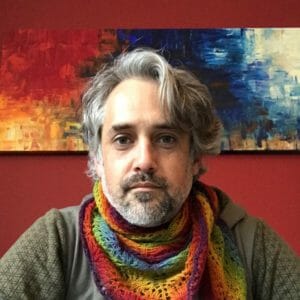
Duncan Autrey has worked in facilitation and conflict resolution for over fifteen years in diverse contexts ranging from rural Paraguay and Colombia to cities of Seattle, Washington, DC, Cuenca and Buenos Aires. He approaches conflict from a belief that it arises from the diverse cultural experiences of common human needs. Every conflict or complicated situation, large or small, is an opportunity for deepening our relationships and improving the world we live in. Duncan currently runs a podcast called Fractal Friends covering topics on exploring our self-similarity across our diversity.
In this episode, Joe interviews Steve Hupp, the Host of Kentucky Ayahuasca, a new series on Viceland. Topics include Steve’s background and how he wants to impact the American Ayahuasca scene through his work.
3 Key Points:
- Kentucky Ayahuasca is a docu-series on Viceland about Shaman, Steve Hupp as he works with people seeking healing from severe emotional and physical issues.
- Steve comes from an unusual background of career criminal and bank robber, and because of his time in prison with a Peruvian Shaman, has decided to bring the tradition to the United States.
- Steve is careful not to mock what shamanism is by creating ceremony in the States. He wants facilitation to be done as safely as possible and is simply trying to help people through Ayahuasca ceremony.
Support the show
- Patreon
- Leave us a review on iTunes
- Share us with your friends – favorite podcast, etc
- Join our Facebook group - Psychedelics Today group – Find the others and create community.
Navigating Psychedelics
Show Notes
About Steve
- He was a career criminal who robbed banks
- It landed him in prison and put him into the same cell of a Peruvian shaman who had overstayed his visa and was probably doing some facilitating in the States
- His name was Guadalupe and Steve called him Loopy because of the things he was talking about
- But here and there Guadalupe would say something that would resonate with Steve days and weeks later that just made sense
Prison
- He spent 4 years in prison
- He got into the federal system because he had beaten the state system so the federal system picked up the case
- Steve pleaded guilty and made a deal with them to give them their money back
- He also agreed not to sue the police for opening fire on him
- He was one of the first bank robbers released on a bond
Religion and Spirituality
- Up to that point he was an Atheist
- He decided that something else was keeping him alive for something because of what he survived during the police chase
- Steve says he's seen how religious law worked by seeing gangs turn into congregations
- He says he is no longer an Atheist after having experience with Ayahuasca
- He had an epiphany that “anything is possible” and he decided he wanted to bring this to everyone
- He started to have coincidences that led him to facilitation
Shamanism
- Steve isn't trying to defraud what Shamanism is, but he is trying to tailor it to the American way of life
- He says the Shaman in the jungle has a different context than an American does
- Joe mentions that people get upset about how the word ‘shaman’ is used
- Steve says ‘shaman’ comes from the Siberian word, ‘saman’, which means “to know” but has been branded by anthropologists
- He also says shamanism is the oldest world religion
- Joe brings up that so many people suggest doing Ayahuasca in the Amazon because that's where the spirit of the plant is, but he also mentions that the same type of biodiversity exists in Kentucky too
Purpose
- Steve says they face reverse-racism because they can't work with native tribes because they are white, but he’s just looking to bring everyone together
- “If we don’t start helping our little blue sphere heal, it's all we've got” - Steve
- He said he had more fear transitioning into Ayahuasca facilitation than any bank he’s robbed because he had to put his name on it
- His intent is not to build a cult, he believes we are at the dawn of a new world and we are all in this together
Helping Addiction with Ayahuasca
- Steve says he believes there are no addicts, just unbalanced humans
- Joe says he read recently that the term “addict” keeps people in their problems
- When he helps people who are addicted to drugs, and they drink Ayahuasca, they realize the drug is not the problem, but the guilt and the shame about using the drug is the problem
Plant Teacher
- Steve believes we are intergalactic children
- We could use our technology and knowledge to better us rather than being so distracted by the ‘lines in the sand’
- He says we could feed everyone on the planet with land the size of Texas
- What Ayahuasca is trying to teach us is to be kind to each other and we have that choice everyday
- We need to get past this barbaric attitude of domination
- “I know I've got grandchildren that I may never see, but I've got to try to leave them a world better than the one I've found” - Steve
- If we were to teach our kids to teach our grandkids something, we wouldn't be handing them millions of dollars in national debt
- Its a non-violent change
- “What if we collectively manifested accountability in our government?” - Steve
Law Enforcement
- Steve believes law enforcement shouldn't be able to have more power than soldiers at war
- Soldiers in Iraq can't fire unless they have been fired upon
Shaman University
- No one has ever done this before, Steve wants to put together a structure to make sure this operation is done ethically
- He wants to lay the foundation for people to participate in Ayahuasca ceremony safely
- He says anybody can brew Ayahuasca, but doing it safely and properly is key
- Joe encourages viewers to check out the series on Viceland
- Steve also encourages listeners who want to do Ayahuasca abroad to do tons of research before attending to make sure there are proper facilitators, ethical procedures and quality emergency response techniques and resources
Links
Kentucky Ayahusca on Viceland
Website
Check out our online course, "Introduction to Psychedelics"
About Steve
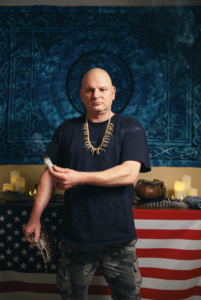
Steve Hupp had spent time in the Military. He was lost in materialism, drug abuse, alcoholism and pride that led him on a 5 year bank robbing spree that ended with him in Federal Prison, where he met his first Shaman, a cellmate. Now he is an Ayahuasca Shaman performing psychedelic healing ceremonies in Kentucky. Steve has worked with Ayahuasca for 15 years, trained by a Shaman from South America on how to work with Ayahuasca. He has spent much of that time working alone and experiencing many visions and entities that called him to found Aya Quest.
In this episode, Joe sits down with Kevin Matthews, Campaign Manager of Decriminalize Denver, the group looking to decriminalize magic mushrooms. During the show, they cover topics such as the Right to Try Act, therapeutic success and what it might look like to have Psilocybin decriminalized in Denver.
3 Key Points:
- Decriminalize Denver’s efforts are aimed to decriminalize Psilocybin Mushrooms in the city of Denver, CO., and are currently getting signatures to be on the May 2019 ballot.
- The Federal Right to Try Act allows a person with a life-threatening illness to use any substance that has passed phase one clinical trials.
- There is so much research and data on the benefits of Psilocybin Mushrooms, and being in an age of social media sharing, people are waking up to the idea of mushroom decriminalization.
Support the show
- Patreon
- Leave us a review on iTunes
- Share us with your friends – favorite podcast, etc
- Join our Facebook group - Psychedelics Today group – Find the others and create community.
Navigating Psychedelics
Show Notes
About Kevin
- Kevin is a part of the group, Decriminalize Denver
- The group submitted the ballot initiative called the Denver Psilocybin Mushroom Decriminalization Initiative and they are getting signatures to make the May 2019 ballot
- Kevin became interested in mushrooms after leaving as a Cadet at the US Military Academy due to major depression
- He was interested in Psilocybin Mushrooms impact on depression
Talking Publicly about Psilocybin Use
- “Self-healing from psychedelics” is something most people want to be careful talking about
- Does it uninspire therapists?
- Does it ruin the medical model?
- Kevin states that people are afraid to talk about it because they are a schedule 1 substance
- Those who are willing to take the risk to talk about it are because they believe that mushrooms might have the best impact on them
Right to Try Act
- Kevin knows someone with PTSD and tumors who is prescribed to Psilocybin under the Federal Right to Try Act
- Anyone who has a life-threatening illness can use any substance that has passed phase one under clinical trials
- His psychiatrist said that the psilocybin has been nothing short of miraculous in its effects
- He takes 1.5-2 grams of dried mushrooms every 7-10 days
It puts him in control of his own protocol - Trump just signed the Federal Right to Try Act this summer, Colorado has had their own since 2014
Generational Mushroom Use
- Joe says that the media landscape has really changed in the past few years and so much more research and information is becoming accessible to everyone
- Veterans for Natural Rights group is supporting this mushroom movement
- After the Controlled Substances Act of 1970, a lot of people went underground with their use
- 30 million people in the country have used psychedelics in the last decade
- More young people now are using psychedelics than the same age group used psychedelics in the 60’s
Decriminalize Denver
- The goal of the group is to decriminalize the personal use and personal possession of Psilocybin mushrooms, including the propagation of mushrooms for personal use
- “Our main goal with this is to keep individuals out of prison, help our vets, and help our loved ones who suffer from these traumas” - Kevin
Colorado Always Making Progress
- Right now, Colorado state legislature is looking at safe injection sites and different kinds of penalty such as rehab instead of incarceration
- Joe says Denver is a kind of microcosm of the whole nation, it has an interest in both sides of an issue, instead of just one sided
- “Mushrooms help, in a very profound way. And opening that door is the first step to changing people’s minds, both metaphorically and physically.” - Kevin
- The medical applications of Psilocybin are huge such as for a stutter, autoimmune issues, anxiety and depression
Talking about Psilocybin
- Kevin says you can't have a conversation without two opposing sides
- He is excited for when the conversation starts because there is a ton of points on why Psilocybin is proven to be effective
- John’s Hopkins said that Psilocybin should at a minimum be a Schedule 4 (same level as prescription sleep aids) source
- Schedule 1 means “no medical value and high risk of abuse”
- From the clinical research and population studies alone on Psilocybin, we know that's false
Decriminalize Denver’s Current Focus
- Getting all 5,000 signatures (2,000 so far) by January 7th
- Coalition building, doing some fundraising
- Getting volunteers activated
- After getting all the signatures, then they will be on the ballot. Once on the ballot, the campaign and outreach starts
Using Psilocybin for Therapy
- Joe brings up a story about his teacher Lenny Gibson who had multiple bouts of cancer and is a psychedelic scholar. Lenny was incredibly mad at Tim Leary because he was in cancer support groups and imagines how many more options cancer patients would have for pain if drugs were not made illegal
- Looking at decreasing suffering, it would be special for the Denver population to find relief in anxiety and depression before going into a life-threatening surgery, etc.
- If this turns into a regulatory medical paradigm, licensure is important
- How do we create the paradigm to open the work in a professional therapeutic manner?
Grand Rounds
- Doctors will get together around a case study and share it within the medical community
- It's a way to share and practice case studies organically and internally
- With social media alone 30,000 people can be reached a month
- Typing in to Google “benefits of mushrooms” brings up a ton of research
- When people hear about John Hopkins, NYU, Harvard, UCLA Medical Center, and all of these companies that have already been doing the research they become more interested
- Medicalization does not equal rescheduling
- Carl Hart
- It takes the breaking up of a family after prison time of a drug offense, 7 generations to recover
- Joe knows of a case where someone in Colorado who got busted for having mushrooms only ended up serving 2 weeks and didn't get a felony for it
- In 2005 New Mexico Court of Appeal said that cultivation of psilocybin mushrooms does not qualify as the manufacture of a controlled substance, as long as they aren't dried
Mushrooms are Beneficial, Not Harmful
- How do we ruin fewer lives by legalizing mushrooms and keeping people out from behind bars?
- Mushrooms can put you in touch with yourself and help connect yourself to others
Feedback
- Most of the responses are, “Hell yeah I’m going to sign this!” or “This saved my life”
- Kevin says when someone says no, it's all about educating them
- They had 45% support it and 20% maybes
Working with the City
- The bill would include a Psilocybin Mushroom Policy Review Panel, a city level committee made up of health professionals, Police, Denver Sheriff's office, city attorneys, etc
Final Thoughts
- Kevin wants as many people as possible willing to participate to volunteer
- They will be starting public Q&A twice a month (and live streaming them)
Links
Check out our online course, "Introduction to Psychedelics"
About Kevin
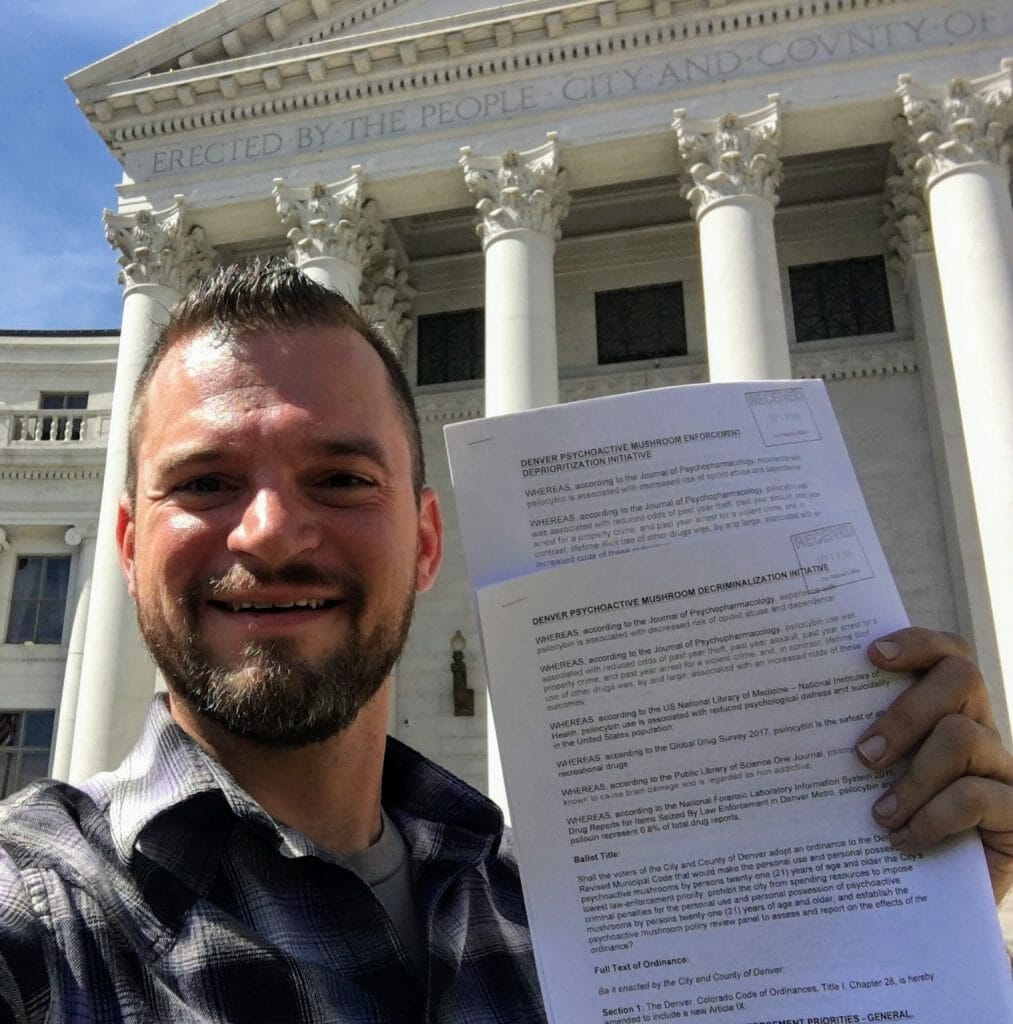
Kevin Matthews is leading the decriminalization of Psilocybin mushrooms in Denver, Colorado. He and his group of dedicated volunteers are currently collecting signatures to make the May 2019 Ballot.
In this episode, Joe and Kyle interview Jake Mitchell from the Flight of Thoughts Podcast.
Jake has spent 4 years as a Paramedic in Canada and leads trainings around mental health, first aid and is bringing better practice of psychedelics into the psychedelic space.
3 Key Points:
- It’s so important to know your substances and get a testing kit so you know its not laced and you know exactly what you're taking.
- More people seek help when they look at an overdose or a difficult experience as if they are suffering versus breaking the law. Decriminalization at the least, would help make people be seen as a patient and not a criminal.
- Most police aren't trained on mental health issues, and they have shot and killed people because they don't know how to correctly respond to issues like schizophrenia. We need more mental health training among our law enforcement.
Support the show
- Patreon
- Leave us a review on iTunes
- Share us with your friends – favorite podcast, etc
- Join our Facebook group - Psychedelics Today group – Find the others and create community.
Navigating Psychedelics
Show Notes
About Jake
- He had major depression and didn't know it, and started to use cannabis as a useful tool for his depression
- He started to notice some of the first responders use MDMA and Psilocybin off-duty to help with their PTSD
- “PTSD for those who have been in combat is more understood than for first responders with it, people think that we can just handle it.” - Jake
- There are levels of trauma that don't qualify daily for PTSD, but for police and firefighters and such, they can be triggered by certain events
- It's hard to say what percentage of first responders use cannabis, MDMA and psilocybin for personal therapeutic use
- Jake says he knows of at least a quarter of first responders who have been open about their use
- There is a new initiative that if police use cannabis, even right before their shift, as long as they are ‘fit for duty’ they won't be scrutinized
CBD
- CBD counteracts the effects of THC, THC binds to CB1 receptors, and CBD binds to CB2 receptors
- CBD is similar to Advil
- If someone has taken too many edibles, they can take Advil to counteract the effect of the THC
- It counteracts the THC similar to how CBD does
- People used to say to have a good night, eat a pot brownie, but it's a better idea to smoke for the first time than to eat an edible
Harm Reduction - Teaching People How to Respond to Overdose
- They are teaching people about harm reduction kits or when to call an ambulance
- Know your substances, and get a testing kit so you know its not laced and you know exactly what you're taking
- Know what breathing technique you want to use if you “feel the fear” setting in
- If you know someone is on a clean substance, you can try to help them through it, but if it could be laced (with fentanyl, etc) call an ambulance
- If someone is unresponsive, that's a sign they could be overdosing
- You can rub as hard as you can with your knuckles on their chest and scream their name, and if they don't wake up, that's a good sign to call 911
- Always turn them on their side so that their air passages open up and they don't asphyxiate on their tongue or vomit
- If you are informed on how to use narcan and you think they are overdosing on fentanyl, use it
- If they are awake and are psychologically freaking out, just sit them down and simply ask them “how can I help?” They might want something as simple as some water or to go for a walk
- Knowing your dose is so important
- LSD and psilocybin don't have cardiac effects, they don't shut off breathing, so you shouldn't have a reason for feeling like your going to actually die unless it's been laced
- MDMA is one you have so worry about but you'd have to take hundreds and hundreds of milligrams
- Fentanyl test strips are $2
- They are only $1.50 if you buy 100 or more
Drug Showmanism
- The first option should always be cannabis
- Usually the only reason that people overdose on heroin is because it's laced with pharmaceuticals
- Advil and Tylenol work similar to opioids
- Sometimes we have emotional trauma and it comes out as physical pain
- More people seek help when they look at it as that they are suffering versus breaking the law
- Narcan costs $20-$40
- An overdose death costs $30,000
- In Canada, the pharmacist will inform you on how to use Narcan
- Jake says he hopes that the US will catch up Narcan availability and use
- The grinding of the teeth after taking MDMA may be a sign that it contains amphetamine
- Decriminalization at the least, would help make people be seen as a patient and not a criminal
A Healthcare Issue, Not a Crime
- The Good Samaritan Act in Canada says if you have minor possession of a substance and not a traffic-able amount, and you call the ambulance for an overdose, you will not be searched or charged
- Most police aren't trained on mental health issues, and there have been situations of people with schizophrenia having a moment in public, and because the police don't have education on signs to look for, they have shot and killed the victim
- 23 and Me, the gene testing company has found that over 180,000 genes tested have been linked to schizophrenia
- High THC levels can make schizophrenia worse, where CBD can counteract it
Serotonin Toxicity
- Jake says he's been hit in the face by someone on PCP
- It took 6 police to hold one person down.
- Another time, there was a guy who was wearing underwear in freezing weather, punching cars driving at almost 40 miles an hour
- They were snorting Wellbutrin, an antidepressant that works as a stimulant when snorted
- Serotonin syndrome is super dangerous
- Ketamine is used in the ER for scenarios like this
- Does taking MDMA too frequently ruin your serotonin system?
- Emanuel Sferios - the number one risk of using MDMA is you might not get high from it anymore
Addiction
- Type II Diabetes is a symptom of sugar addiction
- Sugar and carbs create bacteria in the gut that releases plaque in the blood
- Technology addiction - Jake had a patient that sliced an artery and was texting and on candy crush and Snapchat
Links
Check out this FREE online course, "Introduction to Psychedelics"
About Jake
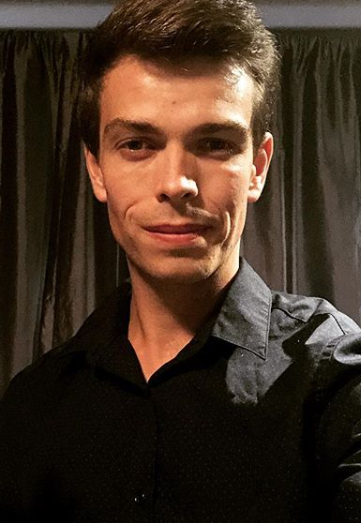
Jake is a Primary Care Paramedic with experience in emergency response, evidence-based research practice, harm reduction techniques, and crisis intervention. He is the Founder of The Psychedelic Society of First Responders and Emergency Workers.
In this interview, Brian Pace interviews Dr. Jason Slot at Ohio State University. In the show, they talk about Jason’s contributions of the psilocybe genus. Jason is in the faculty at OSU in the department of plant pathology.
3 Key Points:
- There are over 200 species of mushroom forming fungi that produce psilocybin, and Jason studies how and why these organisms produce the psychoactive compound.
- Animals seek altered states of consciousness as a potential evolutionary mechanism.
- Mushrooms use horizontal gene transfer to pass on their psychoactive properties.
Support the show
- Patreon
- Leave us a review on iTunes
- Share us with your friends – favorite podcast, etc
- Join our Facebook group - Psychedelics Today group – Find the others and create community.
Navigating Psychedelics
Show Notes
About Jason
- "There weren't many mycology job postings in the area, and a job came up for someone to study the evolution of fungal genomes" - Jason
- It all just fell into place
What is Neurochemical Ecology
- Ecology is the interaction among organisms and their interaction with their environment
- Neurochemical ecology is a special case where the chemicals are specifically targeted to processes of nervous systems in animals
- There is an opportunity for plants and fungi to produce drugs and compounds that manipulate their behavior or inhibit their eating
Species that Produce Psilocybin
- There are over 200 species of mushroom forming fungi that produce psilocybin
- Jason has found many more
Distribution of Psilocybe
- Mushrooms were anatomically modern
- There were flowering forests and wood that spanned to each of the poles
- The supercontinent would have broken up after that and as the continents separated, so did the mushrooms
- Humans have been distributing psilocybe through the dung of migrating animals
Columbian Exchange
- During colonization from the old world to the new world, there was the biggest exchange of fungi
- If the amount of biomass and dung expands, then the number of fungi species evolves and grows
- The underlying change in the climate that changes the planet from forested to open grasslands also has an impact
- During human evolution, psilocybe has been around the whole time
- These neurochemicals have dated human genus
Serotonin
- Serotonin is analogous to psilocybin
- Bacteria was the first organism making serotonin
- Insects produce serotonin
- “Serotonin is a great key, it fits into a lot of different locks and is used in a lot of different ways” - Jason
- It's in plants, its in amoebas, and its in animals
- In animals, they have specialized a lot of different receptors that respond to serotonin
- Serotonin only interacts with one type of receptor in the body
Altered States of Consciousness
- “It must be like something to be a bat, and it must be different than what it's like to be a human, what must it be like to be a bat under the influence of psilocybin, is it anything like a human?” -Brian
- Animals seek altered states of consciousness
- Bees seek out fermented grapes
- We have video footage of foxes taking huge bites out of Amanita Muscaria
- Seeking out intoxication is a natural human drive
- Maybe the desire to seek out these altered states of consciousness is an evolutionary mechanism that is happening
- If you search out new ways of perceiving the world, you may come upon a new pattern that your group of species learns how to live better
- If ants come back to the hive too drunk, they get punished and get bit
Language
- One of the ways humans distinguish ourselves
- We have specialized vocal chords, and tongues that make our language unique
- Terrence - Stoned Ape Theory - the thesis was that psilocybin mushrooms were a part of the diets of the hominids
- There was some kind of co-evolutionary relationship that may have resulted in human language
Psilocybin’s role in our development
- “What kind of role did psilocybin mushrooms play in our development?”
- The hominids came down from the trees and now they are standing upright
- We have to look at opportunity, constraints, etc.
- If the ape eats psilocybin, it may have an idea or understands its environment better
- It may help the ape acquire more food or expand into new territory
- The access to food and changes in locomotion are huge forces in our evolution
- Having fire to cook our meat and change our availability to nutrients is one of the biggest forces in evolution of human consciousness than mushrooms
Horizontal Gene Transfer
- Vertical transfer of information means from parent to offspring
- Horizontal transfer of genetic information happens between species
- One bacteria has a gene to resist an antibiotic, and another doesn't. One bacteria can obtain that gene from the antibiotic resistant bacteria (ex. Antibiotic-resistant staphylococcus)
- Gene transfer can happen in multicellular creatures like mushrooms
- Fungi are exchanging genes through different species
- Paneolis Mushrooms did not inherit the biosynthetic pathway to produce psilocybin, they received it from a totally different genera
KT Extinction
- A comet impact that caused havoc and climate change that resulted in the extinction of dinosaurs
- Mega herbivores, putting out tons of herbivore dung
- The genes to make psilocybin were acquired by a dung loving Paneolis from a dung loving Psilocybe
- Dung attracts flies, but it doesn't kill the insects that eat psilocybin
- Psilocybin is one of the safest drugs for consumption
- The amatoxin in Amanita Muscaria (The Destroying Angel, commonly mistaken with Matsutake), interrupts the central part of cellular metabolism
Identifying Genes in Psilocybin
- He sequenced 3 different species of mushrooms that make psilocybin, and then looked at one species that didn't make psilocybin
- They take two pieces of DNA and then compare them
- They all have those genes, but how did they get them?
- Validated the biosynthesis of psilocybin
- Mediated Horizontal Gene Transfer
- When fungi are under stress they take the DNA from their environment
Cicada Parasitism
- There are cicada pathogens that infect the cicadas before they emerge from their ‘underground’ and their rear end is transformed into these spore producing structures
- They fly around and drop their spores all over
- Are these plants or fungi are using any of these neurochemicals in house for cognition?
- Turing test - a computer can convince you that it's human
Link
Check out this FREE online course, "Introduction to Psychedelics"
About Jason
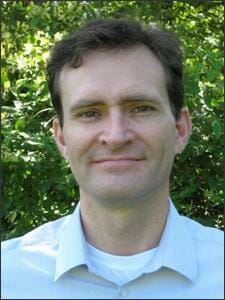
Jason Slot is an Evolutionary Biologist that studies topics in three major areas, the genomic and metabolic bases of fungal adaptation and niche, horizontal gene transfer mechanisms and the evolution of symbioses. He is in the Department of Plant Pathology at Ohio State University.
In this episode, Joe interviews Philip Wolf founder of Cultivating Spirits, a cannabis pairing company. The talk includes topics on Terpenes, Social Consumption and the Cannabis experience industry.
3 Key Points:
- Terpenes are the component in cannabis that produce the aroma and ‘mood’ you will be in after smoking.
- As more and more places legalize cannabis, the market opportunity for combining food and cannabis grows.
- Cultivating Spirits is a cannabis experience and tour company that offers small-batch cannabis, fine wines, and locally sourced gourmet meals. They are a leader in cannabis-infused experiences.
Support the show
- Patreon
- Leave us a review on iTunes
- Share us with your friends – favorite podcast, etc
- Join our Facebook group - Psychedelics Today group – Find the others and create community.
Navigating Psychedelics
Show Notes
About Philip
- Philip has been in the legal industry of cannabis in Colorado for 9 years
- Cultivating Spirits started in Breckenridge, Colorado in 2014 after legalization
- He went to a wine experience event and had an epiphany of bringing the cannabis experience to the ‘soccer mom’
- He walked away from equity in multiple companies because he believed in it
- Cultivating Spirits is the first company to offer a cannabis pairings experience
- After learning about terpenes he learned about pairing foods with attributes of cannabis
Terpenes
- There are 3 components in cannabis that give you certain feelings
- THC gets you high, gives a euphoric feeling
- Flavonoids
- Terpenes produce the aroma of cannabis and it determines the ‘mood’ you will be in after smoking
- Terpenes are produced in all plants and produce, they attract pollinators and help fight disease within the plant
- THC-A is non-activated THC, meaning it needs a flame or heat to activate it
- Michael Pollan’s book - Botany of Desire
- At the base genetic level, our goal is to reproduce and expand
- “Are we the workers for this plant?” - Philip Wolf
People’s Reactions
- They are loving it!
- The average age for a person who attends Cultivating Spirits is 45
- Cultivating Spirits focuses on parties and events
- Old folks are some of the best clientele, they don't have jobs and they are done with all of the hassles of making a family and working hard for their job, etc.
Microserving
- Microserving is one hit
- Holding cannabis in longer doesn't get you higher, it's about the surface area of your lungs
- So if you expand your lungs very lightly, you will get less high than if you would if you fully expand your lungs when taking a hit
Expansion
- Cultivating Spirits operates all over Colorado
- They are working to expand to Las Vegas
- They also opened up Cannabition
- They are taking this business to other places with good heart
Cannabis Nightclubs and Social Consumption Lounges
- Cannabis isn't the reason for the decline in alcohol sales, but the desire for new experiences
- Philip believes it will happen first through coffee shops
- Everyone needs food, so it's a great market to integrate into
- “I use cannabis like I use a cup of coffee, I use it, but I don't use it all day” - Philip Wolf
Cannabis… Psychedelic?
- There is a psychoactive part to cannabis
- Philip says he uses cannabis to deepen his meditation and yoga practice
- He is a Certified Yoga Teacher
- Although he is certified to teach, he did it for himself and to learn tools he can use during his whole life
- Cannabis is a mirror - it's what’s inside already but getting amplified
First Dinner Approved by Municipality
- The opening of X-games in Aspen, CO in 2015
- 5 courses, 5 wines, 5 strains of cannabis
- A DJ from Thievery Corporation deriving beats from where the food dishes come from
- Jessica Catalano - Infusion Chef
Learning More
- Lemonine makes your mind energized and Alphapinine and Betapinine will help you focus Leafly
- Essential oils are made up of terpenes Doterra
- Max Montrose - Trichome Institute
- Daniel McQueen - Medinical Mindfulness
Links
Cultivating Spirits Website
Cannabis Wedding Expo
Facebook
Check out this FREE online course, "Introduction to Psychedelics"
About Philip Wolf
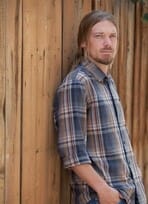
Philip Wolf is one of the world’s first pot sommeliers, an expert and pioneer in the field. In 2014, he opened Cultivating Spirits with a mission to show mainstream America how cannabis should be treated. Setting tables with forks, wine, and pipes, Wolf’s pairings are grounded in the science of interpening, which the institute calls “a method used to identify and understand cannabis variety [by] interpreting … terpenes and flower structure.” Wolf can sniff a bud, identify the strain and terpenes, and interpret both the flavor profile and high. The protocol for his dinner with bud pairings is puff, eat, drink.
Today in the show, Joe talks to Maria Carvalho and Helena Valente, founding members of Kosmicare, a drug testing, and harm reduction service at the Portugal Festival, Boom. Joe talks to Maria and Helena on their personal backgrounds, how they got into Boom, research on recreational use, what harm reduction looks like, and what populations are underserved. Drug use is decriminalized in Portugal, and the focus of risk minimization has been useful in getting the population served versus putting people in prison.
3 Key Points:
- Kosmicare is a harm reduction and psychedelic emergency service starting at Boom music festival in Portugal. Working to support other events in Europe.
- Boom is in Portugal, where drugs are decriminalized and drug testing is legal. Drug policy has directly affected the number of emergencies that Boom has had.
- The Portuguese drug policy has resulted in fewer overdoses, drug-related deaths, and HIV infection. Other countries like the US should consider a drug reform with the current opioid crisis.
Support the show
- Patreon
- Leave us a review on iTunes
- Share us with your friends – favorite podcast, etc
- Join our Facebook group - Psychedelics Today group – Find the others and create community.
Navigating Psychedelics
Show Notes
About Kosmicare
- Kosmicare is a non-profit organization that looks to transform nightlife culture through humanistic, comprehensive and evidence-based policies and interventions
- They work toward a world where drugs can be used with liberty and wisdom
- Making festivals safe in Europe
About Maria
- Psychologist, graduated in 1999 at University of Porto
- She started working in the field of problematic drug use
- Growing up in a difficult neighborhood was her purpose for getting into studying psychology and drug use
- She began focusing on recreational use
- Her younger brother was into the Electronic Dance scene and positioning himself with using substances
- She was interested in studying other motivations to use drugs than just using drugs to feed a problem
- She heard an announcement by MAPS in 2008 recruiting volunteers to do work in psychedelic emergency at Boom
- It was the perfect match considering her interest in psychology and drug use in recreational environments
About Helena
- Helena is a Psychologist who was interested in drug use
- She wanted to have field experience, and she volunteered in a needle exchange program
- She began working for a harm reduction project to work in recreational settings that needed volunteers
- She became interested in the potential that drug checking has in the harm reduction strategy
- They are working toward a ‘drop-in’ where people can show up to a permanent space for drug checking and harm reduction
The Numbers
- Over 20,000 people showed up to Kosmicare’s information session
- This year for the first time, Kosmicare had an HPLC (High Performance Liquid Chromatography) to identify LSD and pills
- They tested over 700 drug samples in 6 days
- Maria says half of the Boom population gets in contact with Kosmicare
- They serve 1% of the Boom population for psychedelic emergency (about 350 cases out of 35,000 attendees)
- The episodes usually have to do with psycho-spiritual situations versus just an emergency about the drug taken
Psychedelic Emergencies
- Boom is a transformational festival that hosts attendees from over 50 countries
- Boom is different from Burning Man in that Boom is in Portugal which has a much more legal framework which helps with the services that can be offered
- Drug policy has directly affected the number of emergencies that Boom has
- Joe states that there are numbers of regulatory police at Burning Man
- Kosmicare is included in the entire setup of Boom, which helps reduce the number of scenarios that would cause an emergency at the festival, such as providing shaded areas all over
- It gets up to 43 degrees Celcius (108 Fahrenheit)
- But there is a water element so people can refresh themselves
- In the largest dance areas at the festival, they included medical emergency Teepees so attendees could be helped as quickly as possible
Recreational Drug Use
- They did a survey on recreational drug use and most of the respondents said they use drugs in a beneficial way that doesn't interrupt their lives in a bad way
- Similarly with Boom attendees, most of them want to use harm reduction techniques so they have positive experiences and don't develop problems with their drug use
- Mat Southwell “drug users are calculated risk takers”
- “The legal framework has a terrible influence on people's relationship with drugs” - Helena
Lessons Learned
- Maria says they have had many groundbreaking challenges
- In 2016 they had someone die on them while having a psychedelic emergency
- It made her really question why she was doing this
- Her first impression was that she was doing this work to save the inexperienced user
- She was caught off guard by the person who died because they were an experienced user and didn't taking unadulterated substances
- “People may go over the top for a wide variety of reasons, it was the biggest lesson I learned working for the Psychedelic Emergency services” - Maria
- It's hard to determine people's ability to calculate risks
- If the person had collapsed in front of an urban hospital in the city, the Hospital couldn't have done anything more than what they did at Kosmicare
Collaborations
- Kosmicare has a collaborative relationship with Zendo
- MAPS was hired by Boom to direct the harm reduction services
- They use a lot of Stan Grof techniques for transpersonal psychology
- They are partnered with many other organizations in Europe that are trying to deliver the same type of psychedelic emergency and harm reduction services
The Risks of Drug Policy
- Joe points out that there are so many festivals happening without these services
- The Rave Act prevents companies from attending festivals because it “harbors” drug use
- In Portugal, the fact that drug use is decriminalized, it opened up a legal framework around harm reduction
- Portugal is one of the few countries where drug checking is allowed by law
- The Portuguese drug policy has resulted in fewer overdoses, drug-related deaths, HIV infection, tuberculosis and other things
- Helena says that the US should rethink their drug policy considering the opioid epidemic
- In Portugal, there were only 12 overdose cases with heroin and opioids
Portugal before the Drug Policy
- In the 80’s, there was a heroin epidemic, which had an epidemic of high infection rates and HIV. This motivated the policy change
- It was evident that prohibition was not working
- Usually when it affects only poor people, no one cares, but the fentanyl crisis is affecting all sorts of populations
Links
Check out this FREE online course, "Introduction to Psychedelics"
About Maria

Maria Carmo Carvalho, Kosmicare Manager, Boom Festival, Portugal, is a Lecturer at the Faculty of Education and Psychology at the Catholic University of Portugal. She researches if the field of psychoactive substance use and has completed a MSc and a PhD at the University of Porto on the field of psychoactive substance use, youth and recreational environments. She is Vice-President of ICEERS and Kosmicare Boom Festival manager since 2012.
About Helena
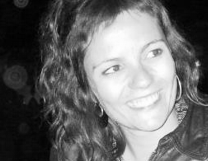
Helena Valente began working with people that use drugs in 2004, focusing in nightlife settings. Helena has a vast experience in coordinating national and European projects in the drug field. At the moment she is a researcher and PhD. Candidate at the Faculty of Psychology and Educational Sciences of the Porto University and founding member of Kosmicare Association.
In this episode, Lori shares her first hand experience of MDMA Therapy assisted by Therapist, Shari Taylor. Shari Taylor is a PhD, MSN and RYT(Registered Yoga Teacher).
Both from New Orleans, Lori Tipton was Shari’s MDMA patient who suffered from traumatic life experiences and PTSD.
3 Key Points:
- Lori shares her heartfelt story about her experience in healing her PTSD in MDMA Therapy
- Before her therapy, Lori says she struggled with loving herself, and the fact that she loves herself now after her healing is the reason she is alive today
- Lori says she wants people to understand that this is a legitimate form of therapy, and wants this to be accessible to everyone
Support the show
- Patreon
- Leave us a review on iTunes
- Share us with your friends – favorite podcast, etc
- Join our Facebook group - Psychedelics Today group – Find the others and create community.
Navigating Psychedelics
Show Notes
About Lori
- Lori has a love/hate relationship with social media
- She saw on Facebook that they were opening the phase 3 trials for MDMA therapy in New Orleans
- Sent an email on a whim and Shari replied
- They looked for people who suffered from significant traumatic events in their lives
- Lori lost her brother to a drug overdose, her mother killed two people and she was the one to discover their bodies, and she was raped by someone she trusted and got pregnant and then had an abortion
- Lori says there was an extensive screening process and psychometric testing
- “You become more of a manifestation of the disorder, and it starts to become who you are” - Lori
- She felt so 'untethered' and removed from everyone and everything because of her PTSD
Day one of Therapy
- There are many sessions before even taking MDMA to get to know each other first
- Set and setting are so important
- Lori says she went in with an open mindset, but was so skeptical
- She had seen psychologists, psychiatrists, endocrinologists, dietitians, taken anti anxiety meds and antidepressants, went vegan, became a yoga teacher, and even saw a witch doctor
- But she was nervous that she was going to go into the sessions and come out a different person, which had her start to question who she really was
Taking the MDMA
- She was offered the MDMA, and she accepted it
- She lied there, started to feel the effects, listened to the music playing and it reminded her of a film she had seen
- Buddy Boulden a trumpet player, who passed away at 30 at a mental institution in Louisiana
- So this just popped into her head and then she told Shari about it and then next thing she knew she was telling her about her mother and her rape
- She lied there, started to feel the effects, listened to the music playing and it reminded her of a film she had seen
- The way that MDMA worked for her in the first session is that when she had a memory, she could feel it, and she hadn't truly felt the feelings from those memories before
- As the session ended, it was anticlimactic
- She said it was like dipping the corner of a towel in water, the water would eventually cover the whole towel
- The amygdala is getting shut down in therapy, so you're able to bring up these memories without getting overwhelmed
Days Following Therapy
- Lori said after the first session, it was awesome! She went and got pizza and it was the best pizza she has ever had in her life!
- The first session of MDMA allowed her to experience life in a way she hadn't been in years
- Her partner noticed her enjoying the world, and noticed the changes the most
- Lori wrote a lot before going into the sessions, and writing has helped her with her healing
The Second Session
- Having PTSD led her to repress her feelings
- When she locked up her fear and anxiety, she unfortunately locked up happiness too
- In the second session she took more MDMA, and it really helped her
- She felt she was able to really separate herself from her memories and feelings and emotions
- “It was like taking off a pair of foggy glasses and it was so empowering” - Lori
- Joe mentions that after his one and only ayahuasca session, he got a strong message that he needed to reconnect to his family
- He says MDMA is so special in that it allows you to feel love in such a strong way, unbounded
- Lori says she struggled with loving herself, and the fact that she loves herself now is the reason she is alive today
- She says her experience is proof that MDMA is not a schedule 1 drug
- Joe says he hopes that the testing goes well to move MDMA into an accessible space
- Lori agrees and wants this to be accessible for everyone in her life
- She believes its revolutionary for psychology
- After the second session, she didn't want to run away from her feelings, she didn't want to kill herself
- Healing isn't always pretty, sometimes it looks like crying on the couch for 6 hours of the day
- She knew she had to be with those feelings
- Her therapist and her tarot card reader both said she would be more of herself after the therapy
The Third Session
- She believes in the power of the drug, but it was also the support of the therapists. The combination of the two is where magic happened
- After walking into her mother's death, she couldn't remember so many parts of those moments
- In that third session, she revisited that memory, and was more present in her memory than what she saw in that moment in her real life
- She remembered things she wasn't able to remember from her life from over a decade
- She was able to have such empathy for herself in that situation
- In that moment, she would have been full of so much shame or blame and she was able to empathize with herself and forgive herself
- “These types of experiences transcend words of how it feels to release that pain” - Lori
- With the feeling of the release about her memory with her mother, she then began to talk about her rape and her whole demeanor shifted
- She was talking about it in an angry tone
- She had triggers post rape, when trying to have sex with someone she loved and it felt like a tiger entered the room, just frightened and in fear
- Certain yoga poses also triggered this PTSD response
- In the therapy session, Shari asked her to try entering into the yoga poses that gave her those feelings
- Lori was overcome with anxiety, fear, she cried, and felt like she was in hell
- Shari asked “what are you feeling?”
- Lori said she felt afraid and full of fear
- And Shari looked at her and asked “what does that feeling need?”
- Lori responded and said “it just needs to be heard”
- After that moment, she felt this huge release
- “There are very few moments in my life that are so profound and beautiful and meaningful to me” - Lori
- Joe said there is some magic in yoga to unveil certain energies when working through PTSD
Afterglow
- She stayed the night each time after a session
- The morning after she had an integrative session
- She felt like she accomplished more than she even thought was possible
- There was not a part of her that understood how magnificent her experience was going to be
- She has been given the gift of being present in the moment
- She now has the ability to be with the people she loves, it changed her life
- To a therapist, who really wants people to be their best selves, this has to be a beautiful thing to see
- Joe says we are seeing movement with this kind of therapy
- With trials, publications, and people coming forward with their stories, its changing the mental health narrative
- Lori wants people to understand that this is a legitimate therapy
- “To deny this therapy is a disservice to human kind” - Lori
Life for Lori After MDMA Therapy
- Startle response is so low
- She works in a bar, and things are dropped and she used to jump at everything, and now she doesn't anymore
- She’s less quick to get angry because she’s not thinking about all of the horrible stuff that could happen at the next moment
- Her ability to be present in the moment has helped her raise her son
- She doesn't have triggering moments when she is aroused
- She is feeling joy and happiness in a way she hasn't felt in over a decade
Shari’s Thoughts
- Hearing Lori’s story gave her a new passion in her field
- Chipping away at the barriers through MDMA therapy is so remarkable
- Therapists create a safe environment with trust and the ability for patients to allow their barriers to fall down so that their inner healer can come out, to help them heal themselves
- She feels so lucky to be a part of this type of therapy
- Stan Grof - inner healer
- The same way that your body knows how to heal a wound on your hand, your mind also knows how to heal your psyche
- After Hurricane Katrina, suicide rates tripled
- Shari gets hundreds of emails from people wanting to be in this study, she hopes or it to become more available for people in the future
- For people who are more interested in learning about these trials, get on the MAPS mailing list
- Joe says or someone with PTSD symptoms, it's not always the best idea to go down to Peru and do ayahuasca, they could get re-traumatized
- Joe hopes for expanded access sooner than completion of phase 3 testing
- He says for therapists interested in MDMA therapy, he really hopes they dive in and learn a lot
Final Thoughts
- Having discussions like this, storytelling, has the ability to change many people's mindsets
- Taking MDMA away from counterculture will be the quicker we can see drug reform
- Whether we see decriminalization, or given expanded access, we need to be aware of what that looks like so everyone can have access to this experience
- It's important to break the stigma of psychedelics so people are more open to their benefits
Main Goals
- We want doctors to be able to use these drugs
- We want people to to use these drugs without going to jail
- We want a flourishing underground provider network that are skilled
- We need to keep working toward re-scheduling
Links
Lori
https://medium.com/@LoriTipton
Shari
info.nolaresearch@gmail.com
The Mind-Body Project
Check out this FREE online course, "Introduction to Psychedelics"
About Lori Tipton

Lori Tipton is an MDMA Assisted Therapy patient who suffered from traumatic life experiences and PTSD.
About Dr. Shari Taylor

Dr. Shari Taylor holds a PhD in Psychology from Northcentral University, a Master’s of Science in Nursing from the University of South Alabama, and a Post-Master’s of Science from the University of Wisconsin-Madison specializing in the field of child/adolescent psychology. She is a Registered Yoga Therapist and teaches yoga both privately and in a class setting. Dr. Taylor is an avid participant in the art, music, and culture scene in New Orleans, Louisiana. She is continually enrolled in courses and workshops to expand her knowledge of nutrition, psychology, wellness, and spirituality.
James Oroc is the Author of Tryptamine Palace and the New Psychedelic Revolution.
Show topics include Burning Man, visionary art, drug war, and politics around the 5-MEO-DMT experience.
3 Key Points:
- James Oroc is cautious about the medicalization of psychedelics. He believes psychedelics do not necessarily heal sick people, but instead bring a new perspective to healthy users.
- The 5-MEO-DMT experience is not like the typical psychedelic experience, not everyone should do it, and there are some serious negative side effects that could last for years if not integrated properly.
- The Bufo Alvarius desert toad is at risk. With climate change and the demand for using them for their 5-MEO-DMT, there is a lot of pressure on their survival as a species.
Support the show
- Patreon
- Leave us a review on iTunes
- Share us with your friends – favorite podcast, etc
- Join our Facebook group - Psychedelics Today group – Find the others and create community.
Navigating Psychedelics
Show Notes
About James
- James has written a few psychedelic books, and is kind of a psychedelic icon
- His interests are in noveling and extreme sports journalism
- He wrote a book for Burning man, and gave away 500 copies at the festival
- He is a world class paragliding competitor
- He believes always being in nature is important
- In the late 80’s the psychedelic culture had crashed, except for the mountain towns, which is where psychedelic community ended up
- Joe lives in the Rockies, and was hanging out in Aspen and ran into an old hippie deadhead who talked about skiing on mescaline, when everyone would typically ski on acid
- In James new book he goes into psychedelics and extreme sports, about using a dose smaller than the psychedelic dose but larger than a micro dose
- Joe references a movie, Valley Uprising, where most of the climbers would hang out on the side of a mountain face, party all night, drop a bunch of acid and then sprint to the top
James’ Interest in Psychedelics
- James says that 5-MEO-DMT converted him from to being a scientific, rationalist, atheist to agnostic, being merged and one with the god source, through the classic mystical experience
- He says it took him multiple years to figure out how a 40 minute trip experiences shifted his entire perspective for the rest of his life
- That's why he wrote his Burning Man book, as a way to help others relate to the experience and make their own sense of it
- Joe says James Book is far more fascinating than Michael Pollan’s Book, especially for people that have been in the psychedelic space for a while
- Michael Pollan states in his book that LSD was given to Tim Leary by Alfred Hubbard, but James says that's not true, he says that a man by the name of Michael Hollingsworth gave LSD to Leary, after coming to America with a jar of mayonnaise full of LSD
- James says its amusing for Pollan to form stories to fit his own narrative
He says Pollan has talked about using psychedelics only four times, and that he doesn't like the psychedelic culture and by using them we will become more depressed- James thinks depression is a result of the paradigm that we are in
- “I don't like the idea of psychedelics being used as bandaids to help people except the current paradigm, I like the idea of psychedelics being dynamite, to help bring the next paradigm shift” - James
- Smart people are depressed because they are realizing we are screwing this planet up, and we may not have that much time left on it
- He called it ‘extinction denial’ in his last book, and after writing his last book in 2009, its gotten exponentially worse
- Joe asks James why he thinks people are denying the extinction narrative
- James replies saying people feel like they can't do anything about it, they worry about paycheck to paycheck, and get caught up in all the small distractions of life. He says no wonder people are depressed
Psychedelics aren't a Medicine
- James thinks the only reason they didn't take hold as medicines in the 60’s is because they were difficult to use, and didn't fit in the medical model
- “The problem with medicalization is it puts psychedelics in one box, I’m more interested in giving psychedelics to healthy people than sick people”
- They don't fall under the true classification of medicines
- James thinks they should be called therapy, instead of medicine
- He understands the interest of why people want to use them as medicines, but that shouldn't be the only way they are used
- Joe adds that the medicalization doesn't mean rescheduling - via drug policy alliance
- James says that last year alone had the most arrests for cannabis than any other year, even as more states are ‘legalizing’
- Joe mentions a comment from Brian Normand who runs Psymposia, “Is cannabis really legal, if you can only have 6 plants? It's just heightened regulation.”
- James thinks that keeping cannabis illegal in the south is the main tool for racial profiling, it's the gateway drug to prison
- Brooklyn wants to release 20,000 cannabis offenders
America
- James thinks living in America is like living in the belly of the beast
- There are so many forces at work in the US, James thinks the best thing for the world would be for it to break up in a few smaller countries, although it's probably not going to happen
- “It's not where you want to be, its where they'll have ya” - James
- There are so many forces at work in the US, James thinks the best thing for the world would be for it to break up in a few smaller countries, although it's probably not going to happen
- The data that John Hopkins comes up with is what we need to fight the cognitive liberty we should have to take psychedelics
- Roland Griffith
- Joe says Stan Grof became uninterested in the research of psychedelics and became more interested in visionary art
- Creativity is what could help us survive
- “Art could be the next religion” - Alex Grey
Reemergence of Spirit
- James thinks we are in an interesting time in history, all of the models and structures are collapsing, we are getting to an individualized view of everything.
- We have the right to create our own spirituality and religion. If we all go find what we find and then come together in clusters of like findings, that is a way for our spirituality to grow
- Daniel Pinchbeck mentions cloistering up in small subculture communities focused on individual sub aspects of what interest you
- Reemergence of spirit is important and can happen with the democratization of psychedelics
- Psychedelics play a role in inner reality and outer reality
- “Psychedelic perspective is the worldview that we take on as a psychedelic user, and its the perspective that the planet needs to survive. Whether as a society that we can shift to that perspective quick enough, is the issue. But the tools are in hand.” - James
Burning Man
- James tells a story of this wealthy CEO who attends Burning Man, and gets back and realizes he's a rich asshole and starts contemplating how he can make his company better for the world and be better to his employees
- Burning Man has a lot of potential like psychedelics do, but it was easier back then Burning Man has blown up and isn't what it used to be
- These highly impactful experiences are more influential when they are small
- Boom, a festival in Portugal is a free environment because everything is legal, there is no paranoia
-
- Burning Man used to be free, but because things are still illegal, it has more of a defensive posture now
- There are so many resources, police, undercovers, put into Burning Man for how little of crime that happens
- Joe says its a means to scare the people
- Burning Man has a lot of potential like psychedelics do, but it was easier back then Burning Man has blown up and isn't what it used to be
- There's a report that the administration put out recently that agreed that climate change is happening but they don't want to do anything about it
Psychedelics
- James says he is a very interested observer to see psychedelics ‘come out of the closet’
- Is medicalization a means to take the fangs off of the drug war, or take power away from the psychedelic culture?
- James says medicalization is just a financial opportunity
- MDMA is leading the push toward legalization
- US Military is super interested in MDMA because of the PTSD
- Drone operators suffer from depression when they realize they are bombing people they've never even seen
- But the MDMA could keep these operators at the desk
History of government's involvement in psychedelics
- Robert Forte - The Dark History of Psychedelics
- MK Ultra did happen
- Robert believes Albert Hofman was in charge
- OSS - Office of Strategic Services
- John Perry Barlow - founder of EFF Electronic Freedom Foundation
- John Gillmore - had the largest civil suit against the US govt. for phone tapping
- If you have an intense psychedelic experience, take some time and integrate it
- “The first place you go after a major psychedelic experience is the library”
- James says 5-MEO-DMT was the greatest intellectual adventure of his life
- He couldn't grasp the concept of quantum physics, after 5-MEO-DMT it was one of the only things that made sense
- Alexander Shulgin - plus four
- James had a paradigm shift after the first time smoking 5-MEO-DMT
- He says 5-MEO-DMT is extremely powerful, he doesn't do it as much anymore, because he appreciates how powerful it is
- He also believes that it's wrong for ‘shamans’ to take the drug while facilitating
- LSD is considered not powerful because its been dialed down
- People don't take the same dose that people used to in the 70’s
- Every community should have its own psychonaut
- James thinks people should not start with 5-MEO-DMT, but start with something less intense like mushrooms and a walk in the woods
- Joe did a lot of holotropic breathwork before taking psychedelics
- So many people go right to ayahuasca because they are out of the psychedelic culture and are being advertised to
- James is annoyed with people calling drugs medicine out of context, like at a festival
- He thinks toad is a sacrament, or therapy, not medicine. It hasn't healed anybody
- He believes that the ‘toad shaman’ culture will be eliminated once chemists start to synthesize 5-MEO-DMT
- The toads are coming from an overly populated desert, and with climate change, there is a lot of pressure on these species survival
Final Thoughts
- James suggestions
- The 5-MEO-DMT experience is unique, it’s not like the typical psychedelic experience, not everyone should do it, and there are some serious negative side effects that could last for years if not integrated properly
- Start with classic psychedelics like LSD or mushrooms, and go for a walk outside
- Stan Grof’s house/library burnt down, Terence McKenna lost two libraries, and Jonathan Ott’s library burnt down. Decades of research burnt down
Check out this FREE online course, "Introduction to Psychedelics"
About James
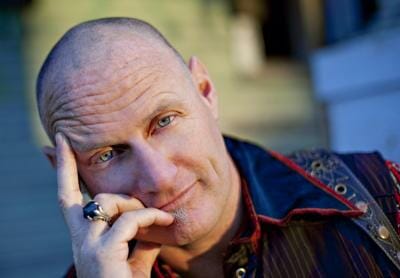
Journalist, photographer, and artist James Oroc was born in the small South Pacific nation of Aotearoa. Since 1998 he has been pursuing and reporting on the cutting edge of extreme sports in more than 40 countries around the globe, his work appearing in magazines, films, and on MTV Sports. He has been a member of the Burning Man community since 1999, and he is also involved in the documentation and advancement of “Alternative Culture.”
Tom Hatsis is an intellectual, occultist, psychedelic user and advocate from Portland, Oregon. In the show, Joe and Tom talk about his new book about microdosing. Joe prepares listeners about the controversial topic, magick, which is highly discussed in the show. Witch craft, western shamanism, old religion and magick are all mentioned during the conversation. Tom is a coordinator for Sanctum Psychedelica, a psychedelic club in Portland.
3 Key Points:
- Tom’s book Microdosing Magic is a book of templates for people to fill in the blank according to what works for them
- Magic isn't the ‘hocus pocus’ witchy stuff that people always assume, it's actually mind hacking, reframing and neurogenesis, that every individual is born with the ability to tap into
- Magic is a great way to create containers to frame our psychedelic experiences
Support the show
- Patreon
- Leave us a review on iTunes
- Share us with your friends – favorite podcast, etc
- Join our Facebook group - Psychedelics Today group – Find the others and create community.
Navigating Psychedelics
Show Notes
About Tom
Tom’s Book - Microdosing Magic: A Psychedelic Spellbook
Tom thinks having a childlike wonder and being curious helped him write his book
He has written 4 books, 3 have been in psychedelic topics
Tom’s background - a part of the Roller derby background since 2005
His first book was called The Roller Derby: A Sensation that caused a Book, the Confessions of a Roller Derby Mascot.
Then he got into psychedelic history and wrote The Witch’s Ointment, Psychedelic Mystery Traditions and his newest book, Microdosing Magic.
Portland is a great place for the psychedelic renaissance
Microdosing Magic
Tom said we should be using psychedelics in a magical way
Joe agrees saying when using psychedelics we should be flexible philosophically
Joe mentions the Robert Anton Wilson reality tunnels
We all have a B.S. (Belief System) and then reality tunnels are the marxist sunglasses and the capitalist sunglasses and feminist sunglasses, instead of having 40 glasses to see behind bias, we all have our own pair of shades
Microdosing is a tool that helps people become childlike, more genius
Magic
Microdosing Magic is a book of templates for people to fill in the blank to what works with them
Tom never tells people what to do with psychedelics, he is offering insight and techniques
Using his own techniques, him and his partner are about to win a guinness world record
“If microdosing is like a healthy diet and magic is like exercise, that's great. But what happens when you put healthy diet with exercise? You have something far more powerful than those two things could have been by themselves. That's how microdosing magic works.”
Magic = mind hacking, re-framing and neurogenesis
The Four Gifts
Tom talks about ‘The Four Gifts’ in his book
They make up the beginning of his personal magical system that he has cultivated over his lifetime
Carl Sagan quote, “The cosmos are within us, we are a way for the universe to know itself”
Tom agrees strongly with that saying, he thinks we are microdoses of that cosmic magic and from it, we've received 3 immaterial gifts, Intellect, Emotion and Will, however, due to our evolution in physical bodies, we've inherited a fourth gift, action
The magical system is about aligning your intellect, emotion and will, so that when we take action, we are acting in pure magic
Magic is super powerful, not something that happens at Disney World. It's a very real thing that every individual is born with the ability to tap into
Orenda - the magic that you are born with
Microdosing Magic is Tom’s small contribution to bettering the world
Joe says there are so many people that practice subtle magic and don't even know it; in catholic religion, in yoga practice
Tom has a friend who ‘doesn't believe in magic’, who is a hardcore material reductionist, who has a ‘lucky hat’
Tom - “This isn't for people with claws and fangs, magic is for anybody who recognizes their own power and wants to harness their power to make their lives and the world around them a better place”
Neurogenesis, better firing, and re-framing happens in a person’s brain after consuming Psilocybin, Lions Mane and Reishi
Tom says he was addicted to coffee, and after using Microdosing Magic, he hasn't needed a cup of coffee on 8 months because of his new neural pathways
Joe jokes about overdosing on coffee for a few months on his coffee addiction
Tom jokes back that he’d just drink it out of the pot
Creative Genius
Dr. George Land study - 98% of 5 year old scored in the creative genius category in the same test that 32 year-olds only scored 2%
The modern education system robs us of our creative genius that we all had when we were kids, but at no fault to the teachers. The education system, buys these education models that just don't work
Tom - “You have to use the internet wisely and not foolishly, to educate yourself and not de-educate yourself”
The Book Tour
Joe asks about the most interesting questions Tom has received on tour
Most people ask about dose sizes and safety questions
Tom explains that he gets nervous about certain questions because he isn't a medical professional or a therapist
Tom “If you wouldn't take a psychedelic dose, don’t start microdosing”
Microdosing
Tom has been microdosing on and off for over 20 years
“We didn't call it microdosing, we called it being broke, we could only afford 1/8th of acid, so we split it up. We felt way more energy, I started writing way more songs, I couldn't put my guitar down. It sparks that creativity”
Joe says it's never been a better time for the psychedelic and microdosing renaissance
Cannabis is now legal in 13 states
FDA just approved mushrooms for PTSD in Canada
MDMA is in phase 3 testing
Tom says people in Silicon Valley, and believes people in Congress and DC are microdosing, they just can't talk about it
He mentions a talk he just did in Salem, a very conservative place, and no one had any questions. And then after the talk, everybody came up to him privately and asked him their questions
Tim Leary made a joke on Liberals not wanting to ‘risk face’
Joe comments on Tom’s book saying it was playful, inspiring, and not threatening like some magic can be
Tom says we don't have villages for support anymore, we have community which has replaced that
Sanctum Psychedelia’s main focus is community building
Tom uses an example of people going to Peru, taking ayahuasca, and because they don't have that mystical framework, they come back to their regular lives and say “now what”? That's why integration and community are so important
Tom says he’d love to see ayahuasca and ibogaine clinics with all the great results people have received from their heroine or cigarette addictions
Tom’s favorite presentation ever was Mark Haden’s blueprint on the future of psychedelics psychotherapy Mark Haden's Presentation on Psycehdelics
Mark Haden Psychedelic Reneissance
Cannabis and the War on Drugs
Tom likes to buy his cannabis directly from his farmer, he prefers to not have the government interfere
He says Gene Simmons from KISS has been so anti cannabis and now all of a sudden is promoting cannabis
Joe brings in the drug war issue, or the issue of people being put in jail for nonviolent crimes (cannabis)
Tom brings in another issue, saying that if a person is charged for drugs at one point in time that later becomes legal, they aren't allowed freedom because of the fact that they did the crime during the time where it was illegal
Racism and the war on drugs really bothers Tom
Amanita and the True History of Christian Psychedelic History
Predominant Paradigm - the ‘Holy Mushroom’
Tom says there aren't mushrooms in Christian art after doing the historical research
Source
He has debunked the Amanita Muscaria Santa Claus connection
Psychedelic Santa
Debate with John Rush
The Mushroom in Christian Art: The Identity of Jesus in the Development of Christianity
People say the Amanita Muscaria and Santa Claus outfit are the same colors, but Santa’s outfit comes from the American Flag
Carl Ruck
Dionysus in Thrace: Ancient Entheogenic Themes in the Mythology and Archeology of Northern Greece, Bulgaria and Turkey
Psychedelic Christianity - a scholarly debate
a scholarly debate pt. 2
Final Thoughts
Tom - “Psychedelics are an excellent way to change your mind and yourself”
Magic is a great way to create containers to frame difficult psychedelic experiences. It’s about putting new frames on your reality
Links
Tom's website
Instagram
Facebook
Youtube
Tom's Book
Check out this FREE online course, "Introduction to Psychedelics"
About Tom
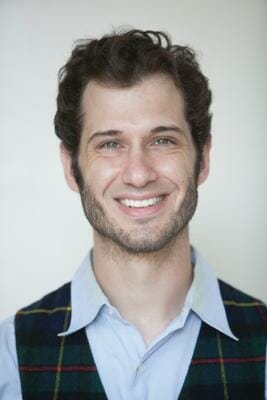 .
.
Thomas Hatsis is an author, lecturer, and historian of witchcraft, magic, Western religions, contemporary psychedelia, entheogens, and medieval pharmacopeia. In his spare time he visits rare archives, slings elixirs, and coaches roller derby.
Key Takeaways
- Bluebird Botanicals is leading the industry in third-party testing and Lab results, green initiatives and a stand on hemp policy.
- CBD helps cushion the psychoactive impact of THC on CB1 receptors, making for a less intense ‘high’.
- Lex has a lot of hope for the 2018 Farm Bill, and believes hemp has widespread uses that will open many market opportunities in the future.
Intro
Joe interviews Lex Pelger, Science Director of Bluebird Botanicals, a Colorado-based company. They talk about CBD and the issues with the FDA talking about health benefits. The use cases of hemp and drug war are discussed.
Who is Lex Pelger?
He is a Science Director of Bluebird Botanicals. Lex moves from New York to Colorado. He did a psychedelic storytelling open mic tour (Blue Dot tour) across the USA and it culminated at the MAPS Psychedelic Science Conference. Moved from the hustle of New York to Colorado to have his baby.
The Cannabinoid
Lex gets excited the more he learns about how intricate the endocannabinoid system is to humans and all mammals
Bluebird Botanicals doesn't make any medical claims
CDB supports health and homeostasis
The cannabinoid system was discovered in the body only 25 years ago
Opium and Cannabis were the two oldest plants used in the body
There isn't anyone connection for cannabis, because there are so many receptors in the human body
There is a ton of research happening on cannabinoids
Lex thinks the research ban on phytocannabinoids is unfortunate
Cannabis and cannabinoids are the most studied drugs in the US
CBD functions as a homeostasis molecule
Anandamide was the first endogenous cannabinoid discovered in the human brain in 1991 by a team led by Raphael Mechoulam in Israel
Raphael Mechoulam discovered the final structure of THC in 1963
CB1 Receptor in the brain was discovered in 1991 also
CB1 Receptor
If the CB1 receptors are blocked in a human or animal, they won't get ‘high’ on weed
The presence of CBD doesn't allow THC to fully bind to the CB1 receptor, so when CBD is present in THC, you won't get quite as high
Lex thinks it's unfortunate that because weed has been in prohibition, it has been bred so hard to only have THC
He thinks all weed should have a little bit of CBD to cushion the psychoactive nature of THC
The Endocannabinoid System
Joe says there is no profile to test the endocannabinoid system to know if a person is deficient or not, that he knows of
Lex says if you get your genetic results from a company like 23 and me, it will tell you about your cannabinoid alleles
A bad trip to a young brain can damage it forever
The activists that annoy Lex are ones that refuse the obvious negatives
Weed should not be given to all children
The ‘Right to Fly’
Jonathan Thompson - Psychedelic Parenting Blog and Podcast
How to create a community on psychedelics
Noah Potter - Psychedelic Law Blog
An open-source thought experiment in psychedelic law and policy
“This plant is tied down by so many regulations” - Lex
In the state of Colorado, you can't make new genetics
Lousy laws made it hard to diversify the cannabis plant
Lex believes Aldous Huxley’s book The Island is the best blueprint for what a sane integration of psychedelics and psychoactive might look like.
Lex says people taking mushrooms in the woods together is so special, simply because a group of people is spending 6-8 hours with nature and with each other.
Bluebird Botanicals
Many different products - isolates, oils, vape juice, and topicals will be back soon
Independent Lab Verification
Leading the industry with third-party lab results
Transparent about ingredients, NO pesticides used!
Paired with Eurofins - world’s biggest testing lab
Bluebird partners with the farmers, packaging partners, etc to be green and more eco-friendly always
CEO Brandon hears about a new point of quality to be added, he goes for it
Passed 99% inspection quality, CGMP
Lex thinks its so nice to work for a company that focuses on giving back to the customers, focusing on employees, quality, the planet, and just giving back
CBD Drug Law Changes in California
The regulations restrict being able to add CBD to food, which goes is against the 2014 Federal Farm Bill
Bluebird is on the board for the US Hemp Roundtable - Hemp Policy
Jonathan Miller - Lawyer of the group and writer to address misinterpretation of the law
“It's foolish to have the 1950’s 1960’s mindset of cannabis” - Joe
Marijuana vs Hemp
Both are cannabis plants
Cannabis is the species, THC is more than .3% THC, Hemp is less than .3% THC
“If a state inspector comes in and tests 6 samples and the results come up as .4% or .5%, they make you burn it. They don't burn it for you, you have to burn it yourself while you watch.” - Lex
Cannabis is tricky to grow for commercial use
It takes 3 generations for the plant to get used to the environment
“Thank you, farmers, for being farmers” - Joe
2018 Farm Bill
Mitch McConnell majority leader of the Senate, is pushing this because he comes from Kentucky, the Hemp state. The Senate version of the Farm Bill is correct, the House version has none of the correct language in it. McConnell and the pro-hemp committee will hash out the differences between the two bills. This Bill expands on all of the rights so it makes it look more enticing and safe for big businesses like Whole Foods and Banks. This bill is going to open up many markets.
Hemp as an Industrial Product
“What’s really cool about hemp is how widespread the uses are” - Lex
The Hemperor, Jack Herer discovered all of the uses for the hemp plant
Oil and plastic did win, hemp did not win as a top 10 commodity
It’s a hard plant to work within the processing stage
Thomas Jefferson stopped growing hemp because the retting stage was too hard on his slaves
Hemp is not going to change all the markets it's been said it will transform
Lex says hempcrete is fascinating. Using hemp as lubricants, bath bombs, and just the seeds are fascinating uses
The Russians and the English fought in a war over access to hemp
Hemp is a rope that doesn't get destroyed by saltwater, fueled the world’s Navy
Fiber is so important, and hemp as a fiber was widespread
Hemp seeds are a perfect mix of essential fatty acids
Hemp seed made pigeons breed more
Joe says there was a huge tradition of people eating pigeons
Agriculture is so bad for topsoil, hemp can help repair our lands for us to keep surviving
Hemp is a holy material in Korea
Joseph Needham layed out all of China’s inventions and explained that the founders of Daoism had a cannabis-induced ‘dream’ and envisioned the first Daoist school where Yin and Yang came from
Lex’s job as a Science Director for Bluebird
Lex does a lot of education around CBD, Cannabinoid science conferences
His passion for cannabis stems from his grandma’s medical condition
He wanted to find a way to describe the cannabinoid system for elders to understand
Lex is thankful for groups like Erowid, who sit down and interview our elders
Lex tells a story about a man who took LSD in the woods, and fell to the ground and felt one with the trees, felt himself rooting down, and felt complete. He never forgot that feeling
Lex thinks that a person should be stable before embarking on a psychedelic journey
“Huxley says that therapists are attracted to psychedelics because of their own dark icebergs” - Lex. He thinks that therapists should be A gatekeeper, not THE gatekeeper
Joe has been trying to get in touch with Dana Beal who popularized ibogaine
“Dana Beal was an old-time, cowboy pot smuggler to fund yippie political activism, outreach, and political activism, so he could make the way that he made money, illegal” - Lex He used the system against itself
Cannabis can cause catalepsy in people - which makes one ‘blackout’
90% of cointel pros were against the Black Panthers
Hoover feared them because they were black and he was racist
They were extremely effective
Lex explains that the war on cannabis has a racist framework, Nixon said “Because black people use cocaine and hippies use cannabis, we can use it against them”
Lex goes on to talk about the history of the CIA, which puts its money into drug trade because it's untraceable, they protect the drug lords to use it for their own financial benefit
He says the CIA and DEA are inefficient bureaucracies
“Our belief at Bluebird, is we have to end the war on drugs. It's not a war on drugs, it's a war on people. The war on drugs is incredibly effective at doing what it was designed to do, and that was to hold, certain people groups down”
Joe comments saying that there are babies being born and being brought into this world. He appreciates Bluebird for having proper business practice
Final Thoughts
Lex finished his Moby Dick Pot books about the endocannabinoid system and the war on drugs He says he based them on Moby Dick because it was the only thing large enough to fit the entire history of cannabis and war on drugs
He does the Greener Grass Podcast for Bluebird which includes topics on cannabis and green initiatives.
He is also a part of the Psychedelic Salon
http://www.lexpelger.com/
https://bluebirdbotanicals.com/
Joe Moore interviews Brian Pace. He studies Evolutionary Ecology, is a science consultant at The Third Wave, and is the director of the project, Mind Manifest Midwest, and instigator of the “Find the Others” project.
3 Key Points:
- Psychedelics are not just illegal, they are also taboo, and Brian’s efforts are aimed to create spaces that make it more comfortable to talk about psychedelics.
- Online resources are great, but having local, and real psychedelic societies to create community will help people “come out” and be comfortable talking about their experiences.
- Brian’s interest evolved from ecology to psychedelics when he realized the issue of global warming. The top environmental problems are selfishness and greed, and changing people’s minds with psychedelics is a big hope for the planet.
Support the show
- Patreon
- Leave us a review on iTunes
- Share us with your friends – favorite podcast, etc
- Join our Facebook group - Psychedelics Today group – Find the others and create community.
Navigating Psychedelics
Show Notes
- Getting Involved with The Third Wave
- Met Paul Austin of The Third Wave at the Global Ibogaine Therapy Alliance Conference.
- The conference was foundational in him becoming outspoken about psychedelics.
- Ibogaine - last resort option for people suffering from addiction.
- Brian and the team built The Third Wave with the goal to bring the conversation about psychedelics to be more comfortable among the general public.
- It has been good about building bridges to invite all types of people to the community, not just white males. It's important to be inclusive in this space.
- Find the Others
- Started at Psychedelic Science, to talk about what psychedelic societies are.
- Aware Project by Ashley Booth (www.awareproject.org)
- Psychedelics are not just illegal, they are also Taboo - Michael Pollan
- “Were having a cultural hangover from the upheavals we've had in the late 60’s and early 70’s.” - Brian
- “We can fight taboos when we can have conversations - about that which was taboo - in the grocery store, in the bar, with our parents. I think that's definitely what's needed with psychedelics.” - Brian
- Had the first psychedelic society meeting at a bar that included a presentation about plant secondary compounds and human health and ended with storytelling.
- 20% of Americans over the age of 15 have had some experience with psychedelics, 11% with LSD. (source unsure)
- Mitch Gomez from Dance Safe - more than 50% of the population of the U.S has done illegal compounds at age 15 and up. Psychedelics have taken a big chunk of that number.
- Cannabis is a great help for football players and traumatic brain injury.
- “If psychedelics are ever going to be reintegrated meaningfully in society, we are going to need some kind of mentorship.” - Brian
- Timothy Leary - “You're born with the right to fly”. If you start driving on LSD, you might lose that right.
- Find the Others, Mind Manifest Midwest, The Third Wave
- A collaborative project that allows people to speak in their own words what they are doing in their psychedelic societies.
- Psychedelic Societies are real, local and create community.
- MDMA for PTSD will be passed at the Federal level very quickly.
- Evolutionary Ecology
- Psilocybin - PhD focused on plant secondary compounds.
- The mycorrhizae network - “the Earth’s natural internet” - Paul Stamets
- Climate change
- Consumption - eating meat and driving cars
- The top environmental problems are selfishness, greed and apathy. Changing people’s mindsets with psychedelics could be an only hope.
- “Given that psychedelics have reliably induced mystical and/or religious experiences in people throughout time and across a variety of contexts, it seems natural that we should start organizing communities that help unpack and contextualize these experiences.” - Brian
- The status of our society
- Why do we have to work 55 hours a week to barely afford a 2 bedroom apartment?
- Guaranteed minimum income - an experiment in other countries.
- What does our society look like when it is less stressed?
- Timothy Leary
- “Who knows what you might learn from taking a chance on conversation with a stranger? Everyone carries a piece of the puzzle. Nobody comes into your life by mere coincidence. Trust your instincts. Do the unexpected. Find the others…”
- Helped create the importance of set and setting.
- Saw the inside of 36 prisons for possession of marijuana.
Link
Check out this FREE online course, "Introduction to Psychedelics"
About Brian
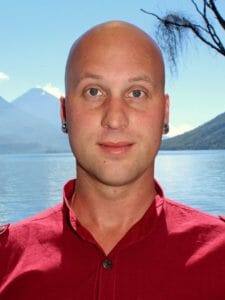
Brian Pace, M.S. is a scientist by training and psychonaut by inclination. His interest in biology was piqued acutely as a teenager while experimenting with his own neurochemistry. For more than a decade, Brian has worked on agrobiodiversity, food sovereignty, urban cycling, and climate change in the US and Mexico. Brian is the co-founder of Mind Manifest Midwest (facebook.com/mindmanifestmidwest), a Columbus, Ohio based psychedelic society and the instigator of the Find the Others Project (findtheothersproject.org), a global collaboration of the burgeoning psychedelic society movement. Since 2016, he has contributed as a strategist for The Third Wave (thethirdwave.co). At The Ohio State University, he co-created a graduate-level class entitled: Cannabis: Past, present, and future cultivation for fiber, food, and medicine. He spent a year slogging around oil and wastewater pits left by Chevron-Texaco testing mycoremediation techniques in the Ecuadorian Amazon. All pipelines leak. Plant medicine is indigenous technology. Brian completes his Ph.D. in Plant Evolutionary Ecology this semester at OSU.
In this episode of Psychedelics Today, Kyle and Joe dig into and create conversation over an email received about the cost of psychedelics, the facets of capitalism and about feeling isolated after a psychedelic experience.
3 Key Points:
- Capitalism in psychedelics is a complex topic and includes factors such as the schooling system, the medical system, monopoly, trade, and other facets that go into the cost of psychedelics.
- There are other forms of therapy that don’t have to involve psychedelics or lots of money.
- Feeling isolated after an experience is sometimes our own blockage, by refusing to create community because a person hasn’t had the same experience as us. Psychedelics aren't always needed for a psychedelic experience.
Support the show
- Patreon
- Leave us a review on iTunes
- Share us with your friends – favorite podcast, etc
- Join our Facebook group - Psychedelics Today group – Find the others and create community.
Navigating Psychedelics
Show Notes
Email concern: Some psychedelic experiences seem segregated by a price bracket.
Ketamine Therapy - believed it would help with their depression, but ended up spending a thousand dollars every two weeks.
Joe - curious that ketamine lozenges may be a cheaper option that could help.
Kyle - although the drug itself may be cheap, you’re not just paying for the lozenges, you're paying for a therapist or a psychiatrist.
Kyle - in America, healing is a privilege. We work hard to pay for health insurance, or even if we are insured through work or family, it gets hard to pay for because of the premiums.
“I would rather pay for taking care of myself, than going out and partying with friends.”
Healing may have to be a choice sadly, you may have to ask yourself “do I want this or do I need this?”
Joe - One treatment of ketamine is beneficial for a short-term intervention in an urgent state
One session of ketamine therapy helps the user understand the situation clearer and can reduce the thoughts of suicide
Kyle - “some of my greatest healing experiences were done through my own work, with myself or with friends”
“How do you feel about the resurgence of spirituality and psychedelics and it’s capitalism?”
Joe - Going from the states to Peru to do ayahuasca to reach spiritualism isn't the only means of spirituality. There are so many other options than capitalist outlets to find spiritual development.
Kyle - “I want to offer a lot of help, and do free workshops, but need money to survive.”
Joe - Jokingly “You’re three months behind on your rent Terrence!”
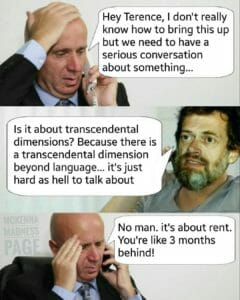
A person doesn't need hundreds of trips to be complete and happy, Aldous Huxley says you need three to four strong trips throughout your life.
“How do we protect the planet, and how do we maintain freedom?”
To talk about Capitalism and psychedelics, we are assuming that something needs to mediate the trade or exchange for therapy. Let’s continue to educate ourselves so that we don’t blame capitalism on the fact that therapy has a cost. It’s a hard conversation to have, it’s a complex topic.
Joe - pro-socialized medicine
$30,000 for a first responder to take an overdose death away
$20-$30 for a Narcan
Let’s prevent and heal more. Capitalism does incentivize doctors and healers.
Kyle - “how can we use these as tools and not toys?”
Medicalization of psychedelics may have a potential tie to capitalism
The difference between doing it legally for an extremely high price, versus paying the market price for a gram of mushrooms (illegally) and doing the work (therapy) on your own.
Joe - Monopoly=capitalism
Kyle - the Education system
Student loan debt can be a half a million dollars to be a doctor or therapist
That debt plays an effect on how much those doctors or therapists charge
“How do you deal with isolationism that certain psychedelic experiences bring forward?”
Kyle - “this has been a huge issue in my life, this resonates with me. After having my near-death experience, I didn't know to talk to people, how to function in the world. A near-death experience is one of the most psychedelic things. To slowly slip away and ‘die’, and come back to this place and not feel like this is where I belong, how do I exist here? It can lead to isolation. It can be extremely heavy.”
“We're all experiencing this reality through our own lens, so we have to meet people where they are.”
The reason these experiences can make us feel lonely is that of the lack of community. Kyle believes in not just constantly going into these experiences, but more about the integration of the experiences.
Joe - Tim Leary says “Find the others”. But there are a lot of psychedelic people out there who don't take psychedelics that can be a part of your ‘community’.
Kyle - it makes sense to feel like you need to connect with someone who has done psychedelics in order for them to understand, but we can connect with other people who may not have had psychedelic experiences.
The psychedelic experience isn't the only way. We can also experience spiritualism and healing without psychedelics, too.
Kyle - Experience in Jamaica, the Rastas talking about home and family, “if the oil splashes up and burns me, my family isn't here to help me, but you're here to help me, and you can help me.”
The people around me are family, they don't always need to have had experienced the same things as me in order to help me
Joe - group strengthens self
Robert Anton Wilson’s habit - he would order magazine subscriptions and most subscriptions aligned with his interests, and the other half were of subscriptions way outside of his interests, so he wouldn't develop a bias.
Check out this FREE online course, "Introduction to Psychedelics"
3 Key Points:
- Psychedelics can be a helpful tool for personal journey work.
- Each type of psychedelic works as its own tool. They are all useful in their own context and should not be compared to each other as better or worse.
- Shane has used psychedelic therapy to help rewire past imprinted constructs of his mind to learn new behaviors in his Jiu Jitsu practice and his daily life.

Support the show
- Patreon
- Leave us a review on iTunes
- Share us with your friends – favorite podcast, etc
- Join our Facebook group - Psychedelics Today group – Find the others and create community.
Navigating Psychedelics
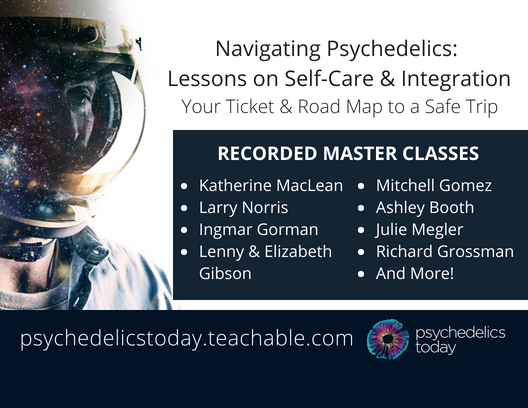
Show Notes
Using Psychedelics for personal journey work- How we can enhance growth using these substances
- “Recently, I’ve been working on softening my hard edges”
- Construct – the scared child. Our childhood leaves imprints that effect our behavior as adults.
- Hyper-masculinity is a result of repressing past issues.
- Substances produce a different feeling as if there is an “other” or “entity” that sends the messages where with breathwork it’s more of a self realization
- Drug chauvanism “my drug is better than your drug”
- “Is lsd worse than mushrooms for spiritual development? Or breathwork? We can’t say yes or no definitively.” -Joe
- Stan Grof – “why would you do breathwork if you have lsd?”
- “There is something special about the group work process in breathwork, that deeper sense of connection is hugely valuable.” -Joe
- Some substances are better when done alone in some circumstances, and substances used in a community setting as better for different circumstances. We have a choice in which tool
- “You can’t build a house with just a hammer. If lsd is a hammer and ketamine is a saw, you can’t say a hammer is better than a saw, they are both essential.”
- Dr. Scott Shannon
- Therapist, making great changes but small changes, looking to make a greater impact through social work, helping people to better themselves.
- Interest in mindfulness, positivity interventions, helping people see their power to fix their own issues
- DMT vape pens
- Make it more convenient for the consumer
- Democratizes the experience, knocks down barriers to be able to have a profound experience
- Podcasts – creating conversation about a shift in consciousness
- Elon musk – our intelligence is heightened through proper use of the cell phone
- Stan Grof – technology of the sacred (ex. Breathwork)
- Tim Leary – “hedonic engineering” how to live a maximally more pleasurable life
- Positive psychology meets wearable technology – developing the steps to the most enjoyable life
- Tim Ferriss twitter feed - “Creation is a better means of self expression than possession, it is through creating not possessing that life is revealed.”
- “Be a creative force in the universe, it feels so good to create, and bring something to fruition, and share it with everybody, not to possess it.” -Shane
- “One mind having a conversation with another mind. Two minds interacting, sharing knowledge, sharing distress, sharing solution, and adding the sum of the two parts coming together, and sharing it with the collective mind.” - Shane on the purpose behind his podcast
- Guests on the show
- How psychedelics help in jiu jitsu
- PhD credential people
- PTSD patients
- 30-60 days without alcohol is needed before using Breathwork for therapy when treating alcoholism
- like sledding down a hill, we always choose the same route. With psychedelics, it helps us see a new route. You stand up, and for the first time, you look up and take a 360 degree turn and see so many new routes that you have the choice to take.
- Analogy used to reprocesses trauma, brings new options to think about the experience differently
- Microdosing helps bring out new patterns of behavior to learn new skills
- “In wrestling, the last place you want to be is on your back, that’s when you get pinned, that’s when you lose a match. In jiu jitsu, being in your back is a good place to be, because there’s a lot of options from there. So I had to unlearn the fear of being on my back. It’s all about retraining my neural pathways, retraining my thinking.” -Shane
- It’s been said, earning a black belt is as much time and effort as earning a PhD
- The transferable skills of Jiu Jitsu can be used in therapy, breathwork and integrating psychedelic experiences. It’s all consciousness work.
Link
www.mind-ops.com Conversations with the Mind - Shane's podcast https://anchor.fm/shane-lemasterCheck out this FREE online course, "Introduction to Psychedelics"
About Shane
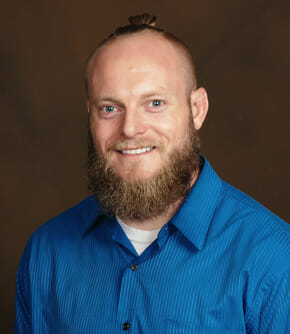 Shane earned his Bachelor of Arts Degree in Psychology from the University of Colorado in Boulder, CO, completed extensive coursework towards a Master of Arts Degree in Sport & Performance Psychology at the University of Denver, and earned his Master of Arts Degree in Sport & Exercise Psychology from Argosy University. Shane is nationally certified as a Sport Psychology Consultant and a licensed mental health clinician in the state of Colorado. Having worked in community non-profit mental health since 2008, Shane has gained experience working with the entire spectrum of mental disorders and with all populations and age groups. Shane plans on attending a Ph.D program in Counseling Psychology where his interest in Resiliency, Mental Toughness, and Mindfulness Training Program Development can be explored and further developed. He is a life-long athlete having competed at various levels in more than a dozen different sports. Because of his passion for warrior cultures of past and present, Shane has been ardently developing his own “Warriorship,” training in various forms of Martial Arts for 25 years. Shane feels that the self-discipline, the philosophy of non-violence, the innumerable mental and physical benefits, and the enjoyment that he gains from the Martial Arts is what helped drive his passion in the field of Psychology. His personal interest in Eastern Philosophy stems from his adoption of a Buddhist lifestyle and blends well with his training in Western Psychological Science. Clients describe Shane as an out-of-the-box clinician that is easy to get along with, knowledgeable on a variety of topics, credible with lived experience, and as having the ability to make therapy fun and interesting.
Shane earned his Bachelor of Arts Degree in Psychology from the University of Colorado in Boulder, CO, completed extensive coursework towards a Master of Arts Degree in Sport & Performance Psychology at the University of Denver, and earned his Master of Arts Degree in Sport & Exercise Psychology from Argosy University. Shane is nationally certified as a Sport Psychology Consultant and a licensed mental health clinician in the state of Colorado. Having worked in community non-profit mental health since 2008, Shane has gained experience working with the entire spectrum of mental disorders and with all populations and age groups. Shane plans on attending a Ph.D program in Counseling Psychology where his interest in Resiliency, Mental Toughness, and Mindfulness Training Program Development can be explored and further developed. He is a life-long athlete having competed at various levels in more than a dozen different sports. Because of his passion for warrior cultures of past and present, Shane has been ardently developing his own “Warriorship,” training in various forms of Martial Arts for 25 years. Shane feels that the self-discipline, the philosophy of non-violence, the innumerable mental and physical benefits, and the enjoyment that he gains from the Martial Arts is what helped drive his passion in the field of Psychology. His personal interest in Eastern Philosophy stems from his adoption of a Buddhist lifestyle and blends well with his training in Western Psychological Science. Clients describe Shane as an out-of-the-box clinician that is easy to get along with, knowledgeable on a variety of topics, credible with lived experience, and as having the ability to make therapy fun and interesting.
- Patent law is worth understanding and shouldn't be ignored in our current psychedelic era.
- It can be used to help protect inventions and innovations that took time and money to develop.
- Patents aren't all bad. They can help protect the small guy as well and large corporations.

Support the show
- Patreon
- Leave us a review on iTunes
- Share us with your friends – favorite podcast, etc
- Join our Facebook group - Psychedelics Today group – Find the others and create community.
Navigating Psychedelics

Show Notes
Patent on Ayahuasca- 1986 Boston College Law review article (source) Warren Miller, scientist and entrepreneur obtained a patent on a strain of ayahuasca vine.
- 400 indigenous tribes challenged the validity of the patent. Controversy over the patent created hostility between Ecuador and US.
- Patent criteria
- A patent must be a process, machine, or manufacture or composition of matter. A patent does not depend on whether a composition of matter is living or non-living, but rather that it is altered and is not a naturally occurring substance.
- Taking a plant from South America, and not altering it should not receive a patent.
- Organizations owning a genome?
- Transgenic modification – able to be patented
- Plant patent – specific category
- Compass pathways – applied for a patent for growing psilocybin – “good manufacturing practice” global standard for manufacturing pharmaceuticals, know your dose each time, etc
- Compass Pathways applied for a British patent called the “Preparation for Psilocybin”
- FDA requires that you meet certain standards when you test a product for purity.
- Trying to patent a pure form of psilocybin. “Non naturally occurring”
- Using the patent as justification to cover the cost for FDA trials.
- Group of scientists who created a statement on open practice – 4 point manifesto. (Ram Dass supports it) Trying to make it non-capitalistic – so no one can create a monopoly on it.
- Full rights can bring the risk of unfair pricing moves
- Martin Shkreli – marked up a life-saving drug by 3000x
- Previous groups have decades of open sharing. Compass does not have the same origins
- Scare – Compass marks up psilocybin. Could be unethical things happening within Compass, but not much journalism done here yet.
- Once a patent is made, harder to make a similar patent.
- Broad-based patents make it harder to create further patents down the line since they have to be novel or significantly different and precisely new
- The process Compass is trying to patent is not the only way to produce GMP psilocybin, there are many other ways.
- May pull a move that gives them special access to administer
- Paul Stamets – psilocybin patent application
- Using psilocybin and niacin for neural regeneration – a neural regenerated composition based upon constituents isolated from or contained within mushroom fruit bodies or psilocybin or the corresponding synthetic molecules combined with niacin
- Google patents – US PTO 154914503 filing date April 23, 2017, another in 2018
- Claims - Mushrooms have improved memory, cognition, motor skills, complex computer coding challenges, hearing, sensory, vision, learning, promote neurogenesis. Therapeutic applications of psilocybin.
- A broad patent that covers a large variety of application for using psilocybin therapeutically, not approved yet.
- Probably would capitalize on the patent. Keen for data sharing and being public with his work.
- Previous patent: Pesticide replacement – fungi that infects ants and brings them back to their homes. More effective than pesticide.
- Good he applied for a patent – it would mean that it wouldn’t block people from accessing it or developing their own
- Andrew Chadeayne – inventor and patent attorney
- Has psilocybin patent update blog
- Applied for patents in the psilocybin space
- Monopoly law
- If there is a popular drug used in the market, a drug company wanting to capitalize – it will cover all their bases with a patent
- Daniel Pinchbeck – theories that could work (Marxist society)
- Cuba – healthcare model – government funds certain health care practices for the public good/applications that the US would not.
- A model that Marxists could use to get these products on the market vs capitalist model
- The basic idea of patents: Inventor – creates a patent to protect the invention, not to dominate the market.
- International Administration of Ketamine to treat Depression – Yale
- Method for treating depression
- University of California – scientists using “compounds for increasing neural plasticity”non-hallucinogenic catalog of psychedelic compounds
- Novel devices for administration
- Intranasal or inhalant administration method for THC, ketamine, etc.
- SYQE – developed method of a delivery subject for Patent Protection
- Full spectrum whole plant extract – different from a vaporizer
- Pctil 2015 050676
- Syqemedical.com
- Smoking – route of administration dosing precision standard is 30%, their dose delivery is at 70%
- Tel Aviv Israel – producing the lowest price per gram in the world of cannabis
- All cannabis being researched in the country must come from one specific facility – set the US back
- German patent – synthetic ayahuasca DE201610014603
- Open source model
- Common law copyright and trademark protection
- Laws changed in 2013 – first to file the patent first, gets the invention
- Important to get patent protection early in the process
- Provisional, and non-provisional patent. Provisional gives a year grace period to file non-provisional without all of the details of the full application.
- Infusion pump technology – method of delivery (ex. DMT) controls the level of a substance in the blood for an undefined, extended period of time.
- Insulin pumps – monitor and deliver
- Raspberry pie devices – can buy a computer and program it to do specific functions. Ex. automated brewing system with temp controls.
- DMTx – same computer could be programmed and applied to control the levels of DMT in the bloodstream
- Joe Rogan and Elon Musk on a podcast – space travel and psychedelics talk
- Peter Theil - Hyper capitalist. Super rich.
- Tim Ferris – most billionaires he interviewed claim they have had substantial psychedelic experiences.
- Patent activity
- Adding cannabinoids to beer, etc.
- Huge market opportunity for cannabis.
Links
- End of the Road Podcast - iTunes
- End of the Road Podcast - LibSyn
- Skqe Medical
- Paul Stamets Patent - Compositions and methods for enhancing neuroregeneration and cognition by combining mushroom extracts containing active ingredients psilocin or psilocybin with erinacines or hericenones enhanced with niacin
Check out this FREE online course, "Introduction to Psychedelics"
About Mike
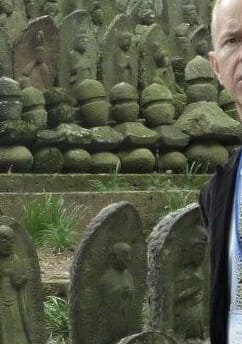 Exploring the Horizons we never touch, because we are already there....with Michael. Mike is a patent lawyer with a long history in trial law. He has a great podcast that you should check out - End of the Road
Exploring the Horizons we never touch, because we are already there....with Michael. Mike is a patent lawyer with a long history in trial law. He has a great podcast that you should check out - End of the Road
- Harm reduction was top notch at Shambhala but the festival could have done a bit more.
- Early psychedelic experiences added substantial depth to her yoga practice and art.
- Marisa has helped us at Psychedelics Today a ton and we are very excited to keep working with her.

Show Notes
- Martian Curiosities - Instagram
- Shambhala Festival in BC
- An electronic music festival with different producers coordinating music and art for each stage.
- No alcohol is allowed at the festival.
- Almost promoted as a psychedelic-friendly festival.
- The biggest win for the festival this year - no fentanyl found in any of the drugs tested.
- Marisa's favorite part about Shambhala is the people/community.
- Shambhala provides harm reduction/drug testing services.
- Drug testing is done by ANKORS.
- ANKORS also provides drug safety information.
- Drug testing helps to clean up the scene because people understand what is found in their substances.
- Drug testing is illegal or not allowed in the United States
- Marisa did some outreach for Psychedelics Today at Shambhala festival to promote drug safety, harm reduction, and our course Navigating Psychedelics
- Marisa's favorite artists at Shambhala
- Marisa's introduction to psychedelics
- Cosmic Trigger by Robert Anton Wilson
- What would it look like if festivals provided integration services to help process the overall festival experience?
Links
Check out this FREE online course, "Introduction to Psychedelics"
About Marisa Novy
 I am Marisa, a 24 year old explorer of consciousness and purpose of life. I graduated UW-Milwaukee with a BBA in Marketing and International Business with an emphasis in Entrepreneurship. I grew up making art, and for the most part, I am constantly creating. I have my own small creative business for my artwork at MARtianCuriosities on Etsy, and @martiancuriosities on Instagram for more consulting projects. I became interested in Psychedelics after reading some cosmic literature, delving deeper into my yogic practice, and through my search for meaning and enlightenment. Psychedelics have helped my creativity to blossom and to be my truest self.
I am Marisa, a 24 year old explorer of consciousness and purpose of life. I graduated UW-Milwaukee with a BBA in Marketing and International Business with an emphasis in Entrepreneurship. I grew up making art, and for the most part, I am constantly creating. I have my own small creative business for my artwork at MARtianCuriosities on Etsy, and @martiancuriosities on Instagram for more consulting projects. I became interested in Psychedelics after reading some cosmic literature, delving deeper into my yogic practice, and through my search for meaning and enlightenment. Psychedelics have helped my creativity to blossom and to be my truest self.
- The history of MDMA is different than we have been taught.
- MDMA is quite safe and the harms are very low. Risk reduction is a more appropriate term at times.
- Emanuel is positive that his early drug experiences substantially helped improve his life.

Show Notes
- There is an largely unknown history of MDMA.
- Sasha Shulgin apparently was not the first to synthesize it in the modern era.
- He created a new synthesis method.
- MDMA was the first designer drug in a sense.
- MDA became illegal and chemists decided to change the molecule
- Manuel Noriega of Panama used MDMA at least once and gave permission to some chemists to manufacture in Panama shortly before the US invasion.
- Harms from MDMA are quite minimal and small.
- Parents who have lost a child can be natural allies to the drug positive movement.
- Best practices for drug testing MDMA and Cocaine.
- It is going to be really hard to convince the public to legalize drugs other than cannabis.
About Emanuel Sferios
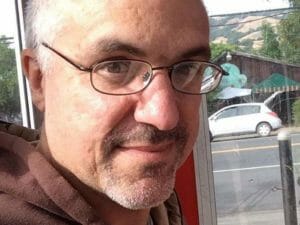 Emanuel Sferios is an activist, educator and harm reduction advocate. Founding DanceSafe in 1998 and starting the first laboratory pill analysis program for ecstasy users that same year (now hosted at Ecstasydata.org), Emanuel pioneered MDMA harm reduction services in the United States. His MDMA Neurochemistry Slideshow has been viewed over 30 million times and remains a primary educational resource for physicians, teachers, drug abuse prevention counselors and MDMA users alike. Emanuel resigned from DanceSafe in 2001 and went on to work in other areas of popular education and harm reduction. He has recently come back as a volunteer. Oh! And he’s making a movie.
Emanuel Sferios is an activist, educator and harm reduction advocate. Founding DanceSafe in 1998 and starting the first laboratory pill analysis program for ecstasy users that same year (now hosted at Ecstasydata.org), Emanuel pioneered MDMA harm reduction services in the United States. His MDMA Neurochemistry Slideshow has been viewed over 30 million times and remains a primary educational resource for physicians, teachers, drug abuse prevention counselors and MDMA users alike. Emanuel resigned from DanceSafe in 2001 and went on to work in other areas of popular education and harm reduction. He has recently come back as a volunteer. Oh! And he’s making a movie. Links
Drug Positive Independent - Meet the Man Who Wants your to Him him Legalise MDMA DanceSafe - Wiki DanceSafe MDMA The MovieIntroduction
During this episode of Psychedelics Today, your host Kyle Buller interviews Robin Kurland-West, a licensed marriage and family therapist based out of California. Kyle and Robin chat about challenges and other questions in regard to providing psychedelic integration services. Psychedelic integration is a new territory, and there are plenty of questions to still answer and cover.
Show Notes
About Robin Kurland-West
- She offers integration services through her therapy practice.
- Robin had questions about how to create an introduction practice and how to follow up.
- She was licensed in 2010 and graduated from the California Institute of Integral Studies in 2006.
- About a year ago she decided to do a karma cleanse and began to talk to a friend about psychedelics.
- Her friend sent her a podcast that spoke to her.
- She was doing some shadow work and dealing with her addiction experiences.
- She said a prayer over the psilocybin and was open to what it would show her.
- A spirit appeared and the forest started sending her messages.
- It was a female spirit and used two trees to illustrate the inside of her brain.
- It taught her that her mind was holding onto negative beliefs.
- She taught her that she needed to let go, that it was “all so absurd.”
- What has been the difference between experimenting in college vs. doing the work as an adult?
- In college, it was seen as a party drug.
- She had a hard time having conversations with people.
- She doesn’t see it as a party drug anymore, it’s something that you honor.
- She now views it as a medicine that heals parts that have been cut off.
- Having had a history of addiction, some people are afraid psychedelics might be addictive.
- Psychedelics are non-addictive because other drugs are about escaping, and psychedelics are about being fully present.
- What is integration work for you and how do you approach it?
- This is new territory for her after having her own experience.
- She joined a network called the psychedelic support network.
- Because it’s not yet legal, it’s a bit of a struggle.
- She offers pre and post ritual services.
- People meet with her and do a pretty thorough assessment.
- They set the intention for the experience.
- Afterward they look at what some of the messages were and how to incorporate it into their daily lives.
- Do you help with dosage?
- She focuses more on intention setting because she’s still new at this.
- She refers people to resources to help with other things.
- Is there a therapeutic approach you use with people?
- She uses expressive arts therapy to tap into the unconscious and subconscious.
- She always uses family systems, there’s usually a root to behavior.
- She uses CBT and DBT.
- She uses journaling and narrative therapy.
- It’s an opportunity to rewrite your story - a new perspective to an old story.
- She uses mandala work and drawing.
- She has them stand up and move around.
- Utilizing movement to integrate is huge.
- After having her profound experience with psychedelics, she finds it to be a warm blanket she can reach for to remind you that things are different now.
- What type of challenges have you had providing integration services to people?
- She wants to know how soon she should see a client after they start on this journey.
- How many times should she see a client after, and how many times?
- It could be more individual.
- She started to do psychotherapy to go deep and heal.
- It’s possible to put your medical license at risk by providing certain services.
- She can’t sit with people when they have their experience and has to be clear that it’s a decision that they’re making.
- She has to detach herself from a lot of it.
- She likes the idea of immediacy in following up with clients.
- She sees a client 3-4 times beforehand to make sure they’re healthy enough and set intention.
- Afterward she wants to see them soon so they can hold onto the gold they discovered in the journey.
- How do you choose the right psychedelic experience for a person?
- The idea of doing a diagnosis to find out what will work is tricky.
- Throw it back on the person to see what they’re looking for.
- It’s not a scary experience, but you want to make sure you’re with someone who’s trained.
- There’s a couple that wants to come in and do integration therapy together.
- She wants to meet with them individually and together beforehand.
- People are in therapy to discover themselves and they might find something different than they’ve been looking for.
- How do you approach people who think integration specialists can get them drugs or be a guide during experiences?
- She says it isn’t about her telling them to use illicit drugs and she doesn’t do drugs with them or hook them up.
- The difference between integration therapy and a guide:
- A guide is someone you trust who sits with you.
- An integration therapist is just pre and post where she’s not involved in the drug.
- Have you had any clients reach out trying to integrate a really difficult experience?
- Not yet, but she’s looking forward to it.
- She would ask questions about what they saw and felt.
- She would bring in the arts to map it out and they can look at it together.
- You can have a psychedelic experience without having psychedelics.
- Is there anything you’re looking forward to with clients?
- In traditional therapy right now, she’s coming up against blockage in some of her clients.
- She sees a lot of people being stuck, and that’s the hardest part.
- She’s excited to see the light turn back on in people’s eyes and see them be healed.
- She wants to see people be present with themselves and each other so they can have a fuller life.
- How do you approach therapy and coaching?
- She just does the psychotherapy, asking questions.
- She appeals to a clients inner resources.
- Do you do any online work?
- She only does in-person work, every once in a while she does a phone session.
- She works holistically, so people don’t just focus on the mind, also the body and the spirit.
- Do you get people reaching out from all over the place?
- Yes, because her name is on the psychedelic support list.
- She filled out an application and had some correspondence with the organization.
- What are some of your favorite podcasts and resources?
- The Psychedelic Salon Podcast
Episode Quotes
- I don’t see psychedelics as a party drug anymore, it’s something that you honor, a medicine.
- I like to see my clients soon after their experience so they can hold onto the gold they discovered on their journey.
- People are in therapy to discover themselves and they might find something different than they’ve been looking for.
Resources Mentioned
So, You Want to Find a Psychedelic Guide - Article Psychedelics Today Episode with Katherine MacLean Joe Rogan Experience interviewing Amber Lyon 8 Common Psychedelic Mistakes Course Erowid Archive The Psychedelic Explorer’s Guide - Risks, Micro-Dosing, Ibogaine, and MoreAbout Robin Kurland-West, LMFT
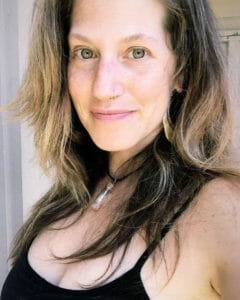 Robin Kurland-West received her license in 2010. Prior to becoming licensed she has worked in non profit agencies and inpatient recovery centers as clinical director, supervisor and lead therapist. Through this journey she has focused her expertise on trauma and addictions. Currently Robin has a private practice in the Sacramento area and works with individuals, families, couples and groups. Her passion to explore consciousness and the healing potential of psychedelics has been prominent through out and is committed to making a difference with those suffering from PTSD and addictions through the use of plant medicines and psychedelic integration therapy.
Robin Kurland-West received her license in 2010. Prior to becoming licensed she has worked in non profit agencies and inpatient recovery centers as clinical director, supervisor and lead therapist. Through this journey she has focused her expertise on trauma and addictions. Currently Robin has a private practice in the Sacramento area and works with individuals, families, couples and groups. Her passion to explore consciousness and the healing potential of psychedelics has been prominent through out and is committed to making a difference with those suffering from PTSD and addictions through the use of plant medicines and psychedelic integration therapy.
Download During this episode of Psychedelics Today, your host Kyle Buller interviews Duli Wilkins, aka the “Beantown Ghetto Shaman” about his work and future plans. In this conversation, Kyle talks to Duli about his work with sacred plant medicines, how he got involved in this type of work, and also explore the topic of people of color and diversity in the psychedelic world.
Show Notes
- About Duli Wilkins
- He’s from the Boston area born and raised.
- He gives credit to his parents for getting him into what he’s into right now.
- His dad used to play jazz music and met a bunch of famous musicians.
- He learned that sound and frequency can be used as a tool for healing.
- He lived between two warring projects.
- A lot of his friends got into the gang life.
- He got heavily into Tai Chi and Chi Kung.
- He became a multi-dimensional healer
- He had a friend who gave him a mushroom and that’s when the magic begins.
- How did everything begin for Duli?
- His empathic abilities heightened more when he used cannabis.
- He started getting deeper into the teachings of Rastafarians.
- In the black community, you didn’t see a lot of people using psychedelics.
- Using a mushroom was very new to him.
- Duli's experience with mushrooms?
- At first he just felt some tingling and checked on his friend looking at the painting.
- He started to see things happen before they were happening.
- He was seeing the fabric of reality.
- He started having out of body experience and heard drumming from the heavens.
- "What was it like for you to be involved in this work when the people around you aren’t?"
- Things are changing, more people across the globe are becoming aware of the benefits of teaching plants.
- A lot of people report seeing ancestors that have passed away.
- There’s a resistance to psychedelics in the black community because of the history of drugs.
- It was easy for the government to shut down everyone but their own children.
- We have to be patient and time will bring things to the surface.
- Discussion about the pharmaceutical system.
- It’s great when you have a broken bone, etc.
- The pharmaceutical establishment is a business and it runs like a business.
- When we deal with ancestral memory or epigenetics the medical industry can’t touch it.
- Safety in a teaching plant ceremony is key.
- Discussion about the dark night of the soul.
- Work in the shadow is important if you want to become whole.
- We’re all walking around with trauma.
- He’s had a lot of past life experiences, even one where his son died very young.
- It takes a lot of courage to try psychedelics and you have to have a good setting.
- "Do you see a lot of spiritual bypassing?"
- Yes, people try to hide behind things.
- Some people hide behind the psychedelics.
- Psychedelics and teaching plants are tools, how are you using the tools?
- When we deal with wealthy people, maybe it’s the lack of struggle to obtain psychedelics.
- There’s much more to us and as time goes by we’re going to have disclosure.
- Duli talks about some experiences with extraterrestrials during psychedelic trips.
- We’re going through cycles and making the same mistakes every time.
- Last words?
-
- Find him on Facebook under @abdukwilkins
- Find him on YouTube under The Beantown Ghetto Shaman
-
Sign up for our free online course
Episode Quotes
- Something inside me said, I should take the mushroom and that was the gateway to shamanism.
- Things are changing, more people across the globe are becoming aware of the benefits of teaching plants.
- We have to have a re-education and awareness around teaching plants.
About Duli Wilkins, a.k.a Duli Tha Beantown G.H.E.T.T.O
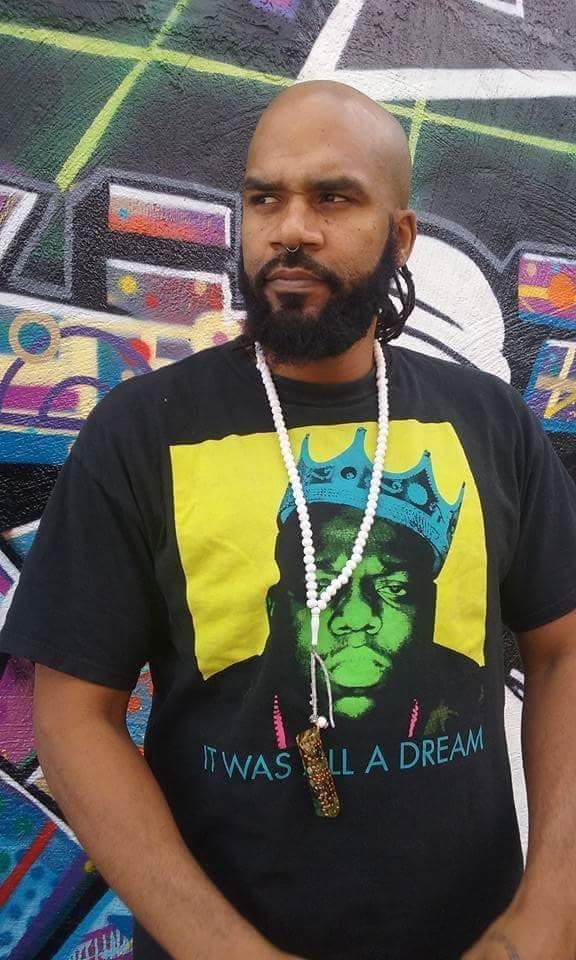
Abdul K. Wilkins a.k.a Duli Tha Beantown G.H.E.T.T.O (Gifted. Hearts. Equal. Towards. Total. Oneness) Shaman is a Boston Native...He grew up in the Inner City of Roxbury where he overcame an environment of gang street violence, neighborhood drug abuse, and police brutality! Duli was influenced at a young age by both of his parents in the interest of spirituality, mysticism, natural healing etc.
While attending College at Northeastern University he had a very mystical experience with psilocybin mushrooms and has been using mushrooms and other psychedelics as a tool for healing and conscious awareness ever since! He is a father of 2 and does massage therapy and natural healings in his community!
Kyle and Joe interview Robert Forte who has been around the psychedelic world for decades as a writer, facilitator and researcher. He has known or has worked with most of the biggest names in psychedelic history including Dr. Stanislav Grof and Timothy Leary among others.
The interview covers a lot of ground and will likely ruffle some feathers.
Robert has extensively studied the history of psychedelics and has drawn some conclusions about the origins of the field.
Psychedelics as Weapons
From the early days, scientists have been working with psychedelics to weaponize them. From project artichoke to MK Ultra, the US government and many foreign governments have spent a tremendous amount of effort researching these powerful compounds and likely still are.
Robert states that various governments particularly the United States government have groups that are using drugs to derange the public to make it easier for these groups to meet their desired outcomes - less democracy, increased plutocratic power, etc. Think Brave New World and Brave New World Revisitied.
Deranged from Miriam Webster:
- My leg was propped up on a library chair at the time, as it was too deranged to bend.
3: wildly odd or eccentric
He makes a compelling argument, but we want you the listener and reader to "Think for Yourself and Question Authority". That was a Leary line that we think is valuablein situations like this. Read books on the subject, question the purpose behind them, think critically and see where you want to go with it.
After recording this interview Joe Moore read the amazing and comprehensive 2016 history The Devil's Chessboard: Allen Dulles, the CIA, and the Rise of America's Secret Government. The book filled in some gaps for me (Joe) but didn't really change my mind much on the topic of psychedelics specifically.
Please enjoy the episode and if you want to discuss it, please join us at our facebook group here.
Links & Show Notes
- Colin Ross - Researcher Psychiatrist
- John Potash | Drugs as Weapons Against Us
- MK Ultra - https://en.wikipedia.org/wiki/Project_MKUltra
- Acid Hype -American News Media and the Psychedelic Experience (History of Communication)
- Henry Luce
- Theodore Shackley - CIA Officer
- Reinhard Galen
- Samuel Russell - Russell Trust opium \ skull and bones
- Brave new world revisited - https://www.huxley.net/bnw-revisited/
- Entheogens and the Future of Religion
- The Devil's Chessboard
- Allen Dulles
- 10 Global Businesses That Worked with the Nazis http://www.businesspundit.com/10-global-businesses-that-worked-with-the-nazis/2/
- JP Morgan Bank complicit in financial crimes in WWII
- The Politics of Heroin: CIA Complicity in the Global Drug Trade
- Mossad
- Israeli Mafia
- One Nation Under God: The Triumph of the Native American Church
- J. Tony Serra (born December 30, 1934) is an American civil rights lawyer, activist and tax resister from San Francisco - https://en.wikipedia.org/wiki/Tony_Serra
About Robert Forte
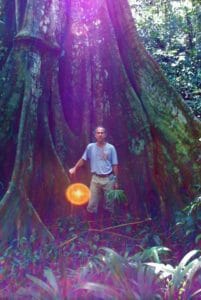
James Fadiman calls Robert Forte, “a major but not well known hero of the psychedelic movement.” A scholar, editor, publisher, professor, researcher of the subject for over 3 decades, Forte has come to some disturbing realizations about the psychedelic renaissance that he helped to start. Huston Smith called his first book, Entheogens and the Future of Religion, “the best single inquiry into the religious significance of chemically occasioned mystical experience that has yet appeared.” Forte was introduced to psychedelics in 1980 by Frank Barron, who initiated Timothy Leary and started the Harvard Psilocybin Project with him. From the University of California Forte was invited to Esalen to study with Stanislav Grof, before going to the University of Chicago to study the history and psychology of religion under Mircea Eliade. Over the years Forte has worked closely with many of the most prominent leaders of the psychedelic movement, including R. G. Wasson, Albert Hofmann, Timothy Leary, Ralph Metzner, Alexander Shulgin, Claudio Naranjo, and many others. His early MDMA research in 1981-85 turned on 100s of people to this new medicine. Though this project led to the creation of MAPS, Forte is a vocal critic of MAPS government collusion and deceptive policies. His second book is a rounded view of Timothy Leary, Outside Looking In: Appreciations, Castigations, Reminiscences. He first experienced ayahuasca in 1988, and conducted ayahuasca research with cancer patients in Peru, yet he is now suspicious of the globalizing of ayahuasca as an form of “spiritual colonialism.” He is a enthusiastic supporter of conscious, independent psychedelic healing and recreation, and an equally fierce opponent of psychedelics for mind control, profiteering, and social engineering by political and economic elites.
Episode Quotes
- I find mystical poetry to be an amazing aid in ceremony work.
- Is it the vision or the emotion that you feel and then the vision comes?
- In my work, the psychedelic experience is about going beyond the visionary state.
- The core of all creation is in the heart and breath.

Show Notes
- About Dr. Richard Grossman
- Has a long background in healing.
- He used to be a macrobiotic chef.
- Primeval meditations and licensed acupuncturist.
- Works with ayahuasca and San Pedro.
- How did Richard get involved in ayahuasca?
- A friend brought some up from Peru and his life changed in one night.
- It took him years as an acupuncturist learning more about healing.
- He’s been doing this for about thirty years.
- Do you integrate your acupuncture practice into ceremony?
- Not so much with ayahuasca - that’s done traditionally.
- He had a lot of experience with the Shipibo Tradition.
- With the San Pedro method, the body change happens in one day.
- Opinions on psychedelic visions.
- Many people want them and they’re a distraction.
- The real thing is that the source of everything is within.
- If a person can experience that for an instant, their life changes.
- There are a lot of things happening on subtle levels.
- The psychonaut and healing processes are quite different.
- What are some examples of ideas you’ve seen in the psychedelic community?
- People trying to draw in gods and goddesses.
- You need to see how deep a human being can go, it’s an infinite journey.
- What is it like to go deeper and deeper?
- If you can imagine a series of curtains parting over and over and over again.
- You begin to see places of illusion.
- During one of his trips, he visualized himself in a Nazi concentration camp.
- A voice told him to trust and forgive.
- He began to question what forgiveness and trust mean.
- Some people are seeking spirituality and not really healing within.
- Ayahuasca tourism is a fairly good thing, rather than people coming and ruining the jungle.
- How would you define a healing process?
- It’s a complex subject, he likes the idea of a series of concentric circles.
- Do you work with a person’s energy?
- People get very relaxed.
- If there is someone who can’t get relax he calms them with acupuncture.
- Do you think intoxicants affects the chi?
- San Pedro or ayahuasca are not considered intoxicants.
- He sees that ayahuasca is only good for the body.
- Psilocybin has a rough effect on the liver.
- The tannins in ayahuasca are valuable and bind toxins in the body.
- Do you have to worry about any cardiovascular problems?
- It is a stimulant so he screens people before doing the ceremony.
- Beauty is a healing process, beauty heals.
- Is there anything you’re excited about in the psychedelic world?
- When the community comes together to heal it’s powerful.
- We’re all going to a place of more love, peace, joy, and healing.
- What’s the outcome of thousands of people experiencing love and joy?
- What’s the ayahuasca ceremony structure?
- Constant music, keeping things from going totally wonky.
- There’s a point in the ceremony that it could go in either direction:
- Total group insanity or total group healing.
- Iowaska ceremonies can be dangerous.
- It’s something to be respected with its own spirit.
- You must hold close to the traditions of generations.
- There’s always a point during the ceremony where he feels it’s the most important and beautiful place he’s ever been.
- Drama’s not necessary, our culture wants the drama.
- We need to outgrow externalizing the blame.
- Life in our heart is meant to be enjoyed.
- Suffering to heal just doesn’t work.
- Culture seems to dwell on suffering, is that conditioning?
- The worst thing a human can possibly do is feeling guilty.
- "Guilt can’t fly and God wants you to fly."
- The nature of reality is joy and love.
- You need to be willing to let go of the things that don’t work.
- Psychedelics can be used as a guiding light.
- The worst thing a human can possibly do is feeling guilty.
- Any final advice, events?
- Find him on his website or on Facebook.
- Heartfeather.com - Dr. Richard Grossman’s website.
- Don’t stop, just keep going.
Sign up for our free course, "Introduction to Psychedelics"

About Richard Grossman, L.AC., O.M.D., Ph.D.
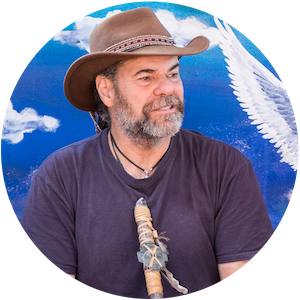 Richard Grossman studied Oriental Medicine at the California Acupuncture College in Los Angeles and received his post-graduate acupuncture training in Beijing, in a course sponsored by the World Health Organization and attended by physicians from around the world. He earned a Masters in Acupuncture, a Doctor of Oriental Medicine degree, a Ph.D. in Oriental Medicine, a Diplomat in Acupuncture, a Diplomat of Pain Management, and a Diplomat in Acupuncture Orthopedics.
Richard Grossman studied Oriental Medicine at the California Acupuncture College in Los Angeles and received his post-graduate acupuncture training in Beijing, in a course sponsored by the World Health Organization and attended by physicians from around the world. He earned a Masters in Acupuncture, a Doctor of Oriental Medicine degree, a Ph.D. in Oriental Medicine, a Diplomat in Acupuncture, a Diplomat of Pain Management, and a Diplomat in Acupuncture Orthopedics.

Show Notes
About Dr. Will Siu- He’s a psychiatrist and therapist on the MDMA for PTSD clinical trials with the supervision of Dr. Monnica Williams.
- Based in NYC and has a private practice.
- Does some work in emergency psychiatry at a local hospital.
- Associate professor at the University of Connecticut.
- Does graduate teaching and multicultural psychology and research in the health center.
- Currently doing a study on MDMA assisted psychotherapy for PTSD.
- What is race-based trauma?
- There had been some studies previously.
- When people become traumatized by experiences of racism, oppression, marginalization based on their perceived identity.
- Often because of ongoing experiences, like microaggressions
- Eventually, people have so many of these experiences that they start to have symptoms of PTSD.
- People get so distressed and afraid that they act in a way that might harm them.
- You have to think about trauma in a non-single event way.
- Exploring the topic epigenetics.
- Trauma has been passed down from generation to generation.
- Layer epigenetics on top of what’s currently going on and trauma is understandable.
- How has recruiting been going for the MDMA study?
- It’s challenging, they’re not drawing from the same population the other sites are.
- They’re creating a culturally safe, welcoming environment for people of color.
- There is fear and misinformation that requires them to do a lot of education on the front end.
- Research abuses haven’t stopped, they’re still continuing today.
- Psychedelic drugs are almost exclusively used by white people.
- Are there any big problems you’re trying to tackle now in prepping the study?
- Traditionally there has been no compensation for study participants, but it’s needed for this study.
- Another layer is paying via direct deposit vs. cash and getting the university on board.
- How do you send someone back into the trauma you’re trying to heal.
- How do you support people in the study?
- Support them as much as possible during the study.
- Continue to follow-up with people after the treatment is over.
- There is a lack of people of color in the therapy field, especially MAPS.
- Often people of color don’t have a good experience with white therapists.
- Why do you think there aren’t very many people of color in psychedelics?
- People of color haven’t had the same advantages to become therapists.
- It’s not safe to talk about substances when your license is on the line.
- Culturally, psychedelics haven’t played as big of a role with people of color.
- People of color haven’t had the same advantages to become therapists.
- What does an ideal training model look like for you?
- Watching the videos of people getting well was a big game changer.
- The training needs a fuller understanding of what people from other ethnic and cultural groups need.
- Monica is altering the training to be more relatable.
- Talk about enrollment.
- They have people at all different stages right now.
- They have about 18 people total who have gone through the stages.
- They still have to follow the guidelines of an indexed trauma to be accepted.
- How big is your team right now?
- Three therapist pair teams.
- A few other people who assist in various ways.
- Several people are doing double-duty.
- How can the psychedelic community be more inclusive of people of color?
- Make some close friends who are not white.
- Do you have any fantasy projects you’d like to see play out?
- Start a master’s program with a specialty track in minority mental health and psychedelic therapy.
- All scholarships for people of color.
- Any advice you’d give to a young person or professional?
- There’s a lot of work to be done and we need enthusiastic minds.
- Change won’t happen overnight or be easy, but it’s worth it.
- Be involved in the community
Episode Quotes
The psychedelic community is a very, very white community - most people of color haven’t had an experience with psychedelics. Ultimately, psychedelics and psychotherapy will be an accepted, licensed form of treatment.
About Monnica Williams
 Monnica Williams, Ph.D. is a board-certified, licensed clinical psychologist, specializing in cognitive-behavioral therapies. She is an Associate Professor in the Department of Psychological Sciences at the University of Connecticut, and Director of the Laboratory for Culture and Mental Health Disparities. She is also the Clinical Director of the Behavioral Wellness Clinic, LLC in Mansfield, Connecticut, and she has founded clinics in Kentucky, Virginia, and Pennsylvania.
Monnica Williams, Ph.D. is a board-certified, licensed clinical psychologist, specializing in cognitive-behavioral therapies. She is an Associate Professor in the Department of Psychological Sciences at the University of Connecticut, and Director of the Laboratory for Culture and Mental Health Disparities. She is also the Clinical Director of the Behavioral Wellness Clinic, LLC in Mansfield, Connecticut, and she has founded clinics in Kentucky, Virginia, and Pennsylvania. Will Siu, MD, DPhil
- Measuring wisdom
- Mindfulness
- The promise of psychedelics
- Future research opportunities
- How friendly the University of Toronto is to psychedelic research
- Interesting philosophical overlaps with psychedelics and occultism
- and much more!!
Quotes
We’re very much detached from our own traditions here in the west. Just imagining practicing something can have just as much of an effect of your performance than actually practicing it. You have to bring your insights back into the community to be an effective member of society. There’s a strong relationship between wisdom and psychedelics. Without intervention, life will tend toward suffering.
Links - Daniel Grieg
Youtube - Daniel Grieg Academia.edu Relevance realizing https://www.frontiersin.org/articles/10.3389/fphar.2017.00814/full https://www.frontiersin.org/articles/10.3389/fphar.2018.00100/full Wisdom - https://www.psychologytoday.com/us/basics/wisdom https://www.academia.edu/1762150/A_route_to_well-being_intelligence_vs._wise_reasoning http://journals.sagepub.com/doi/abs/10.1177/1948550616652206 http://www.wisdompage.com/Ardelt01.html Development Lines - Ken Wilbur Wiki Marta Kaczmarczyk
Marta Kaczmarczyk 


